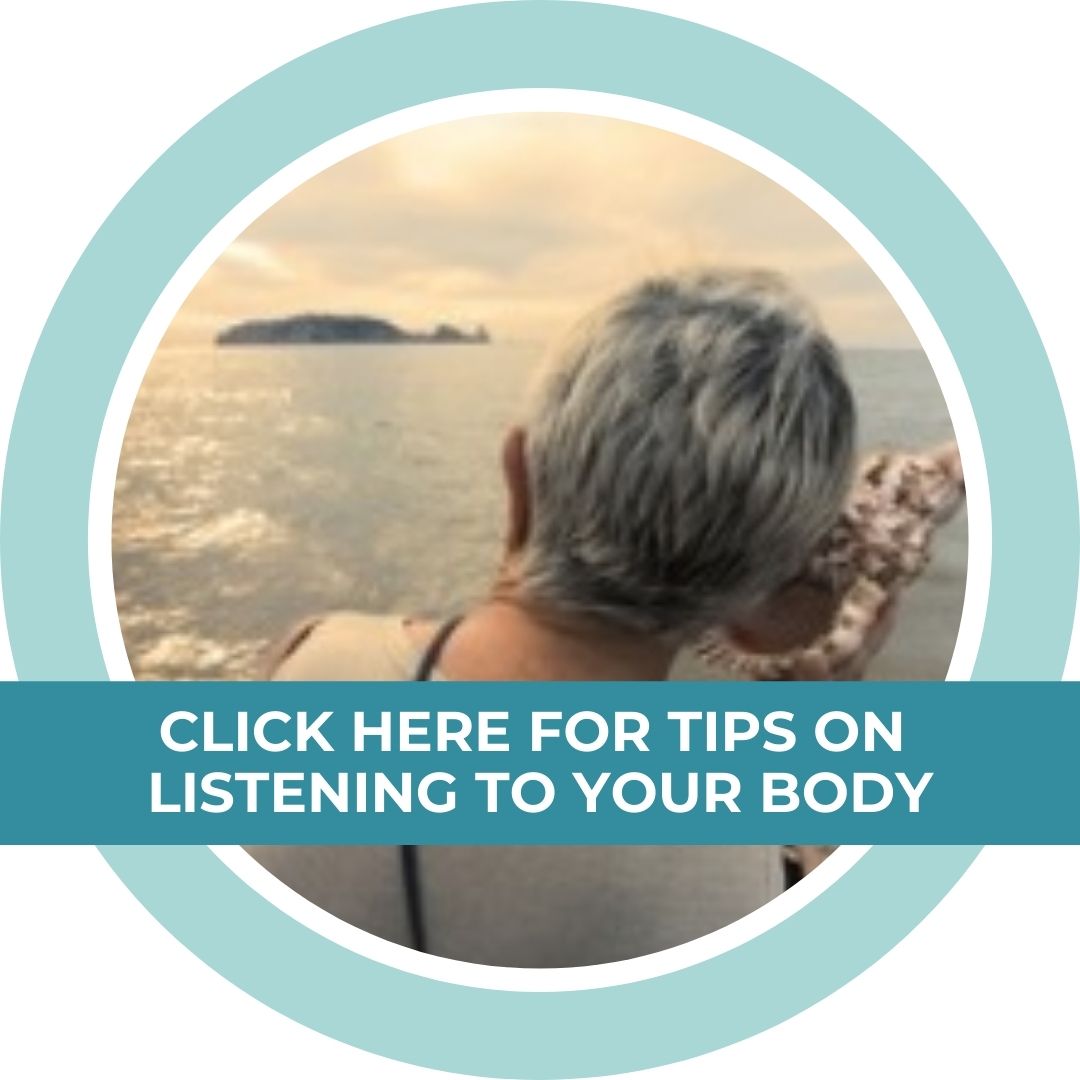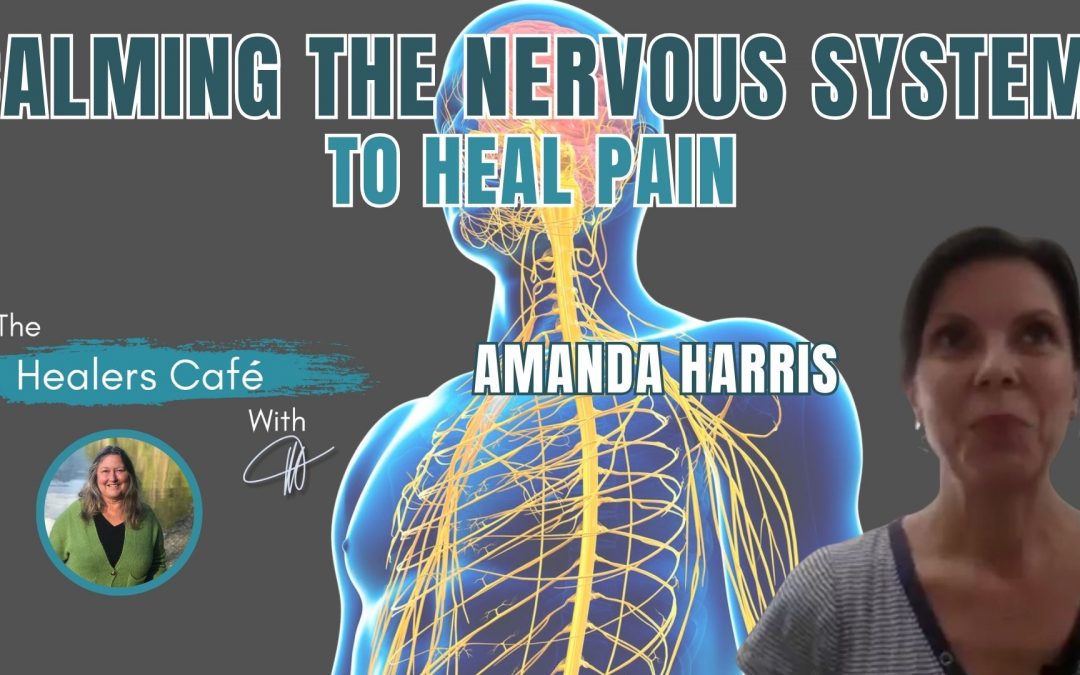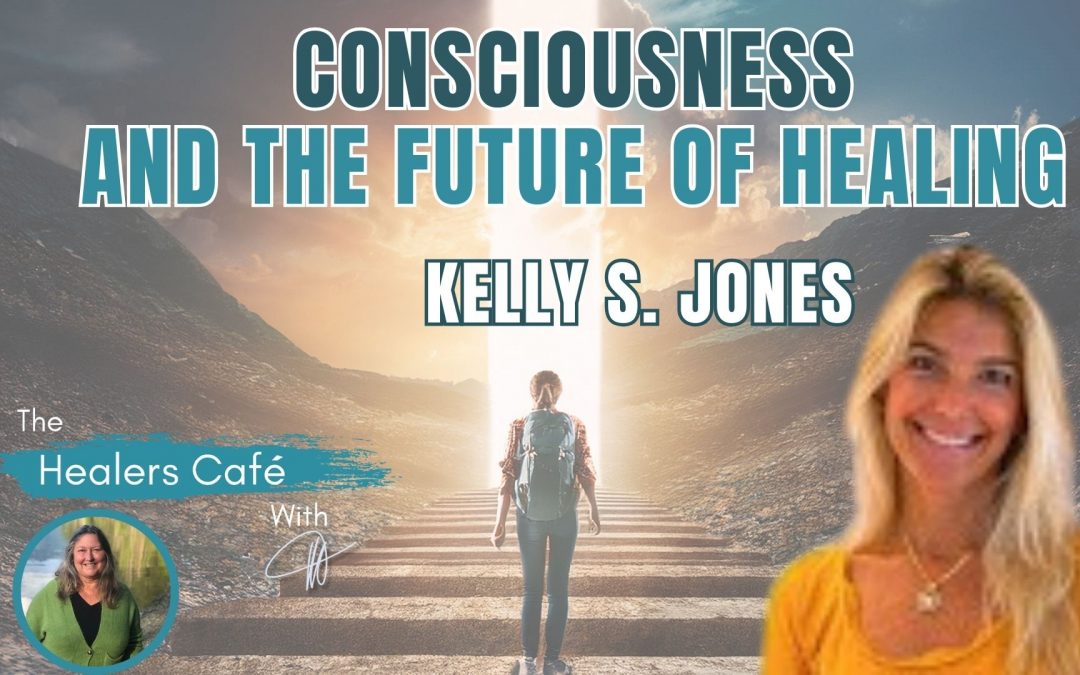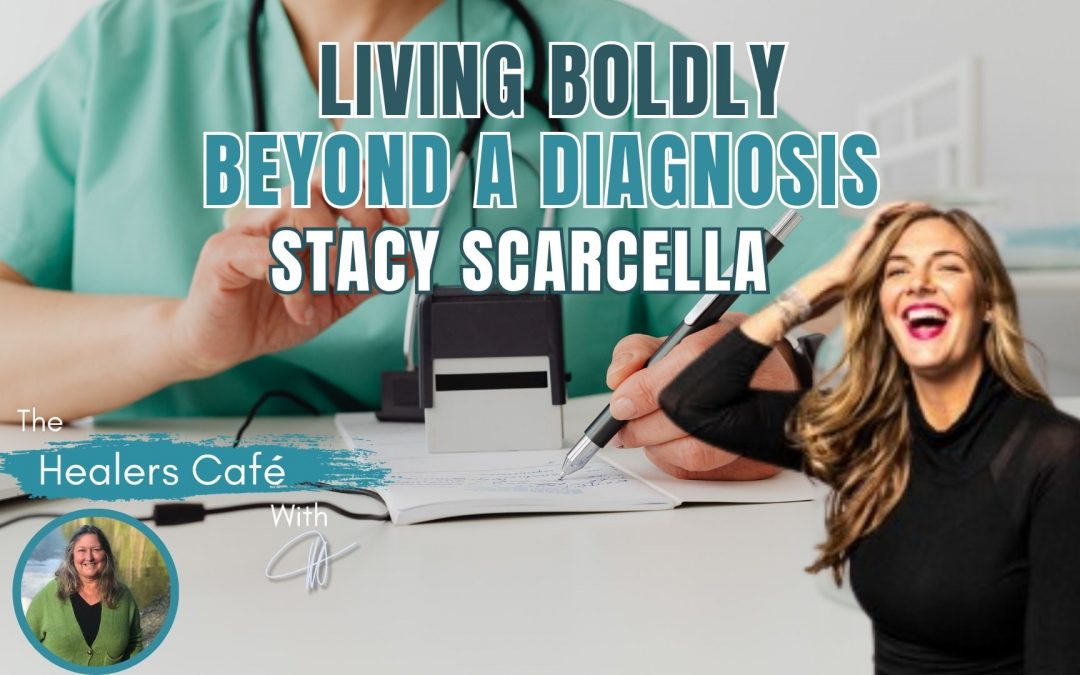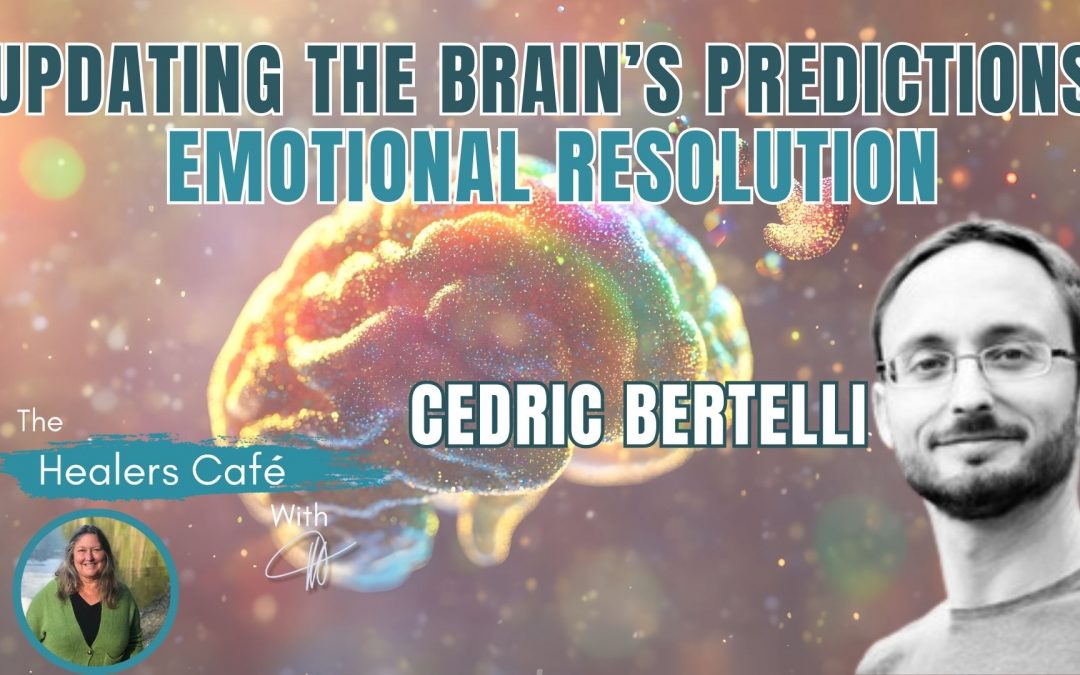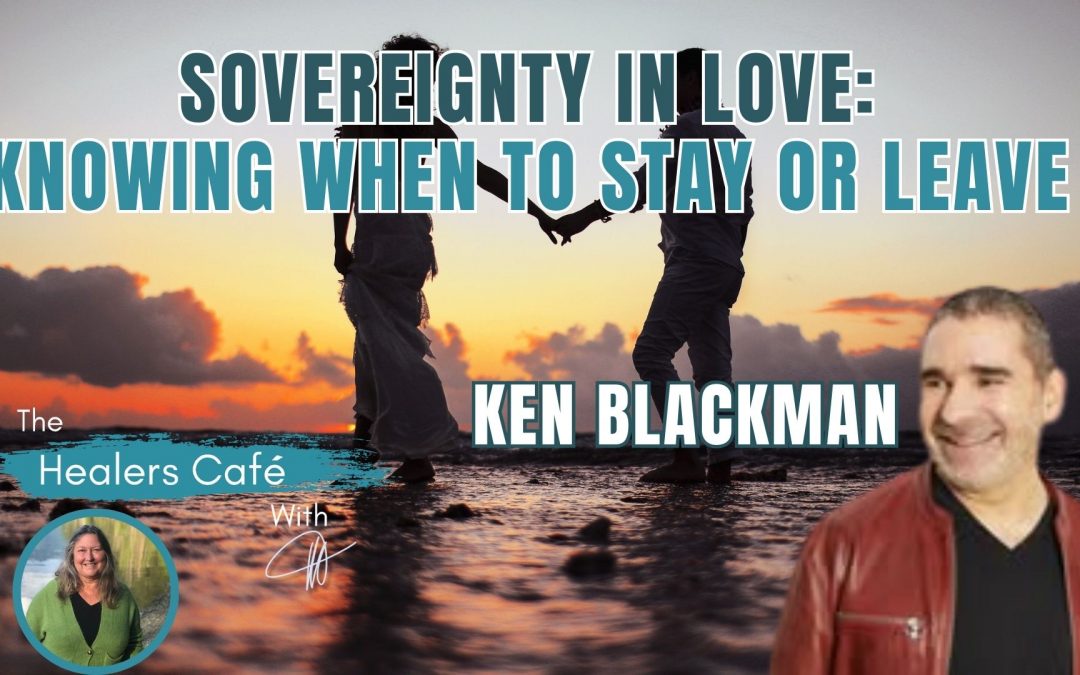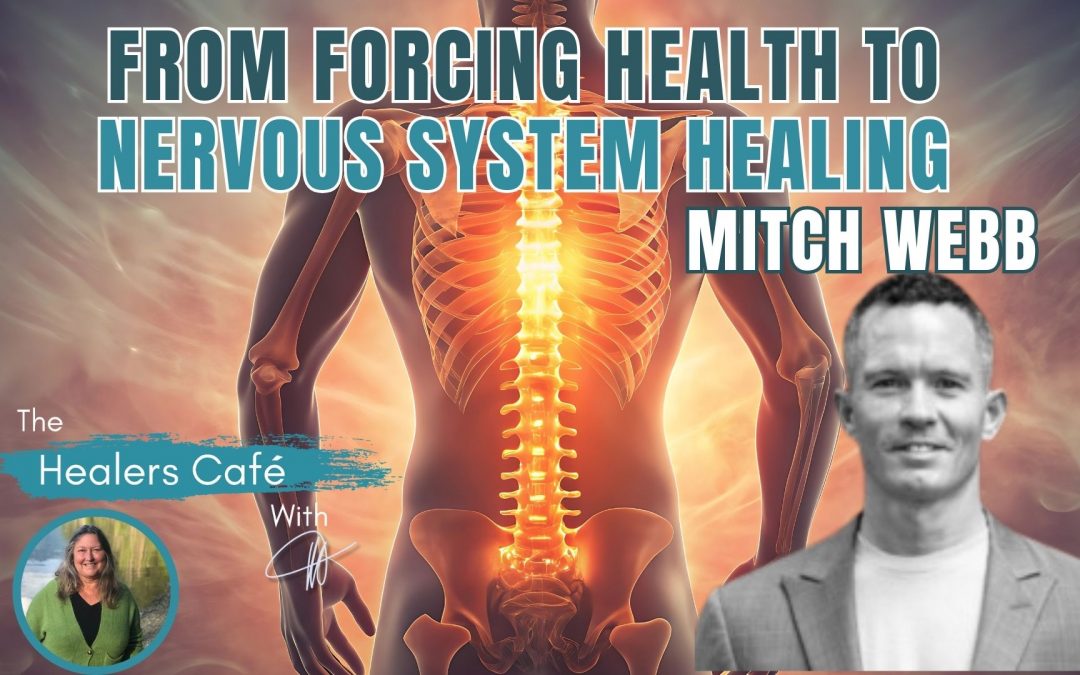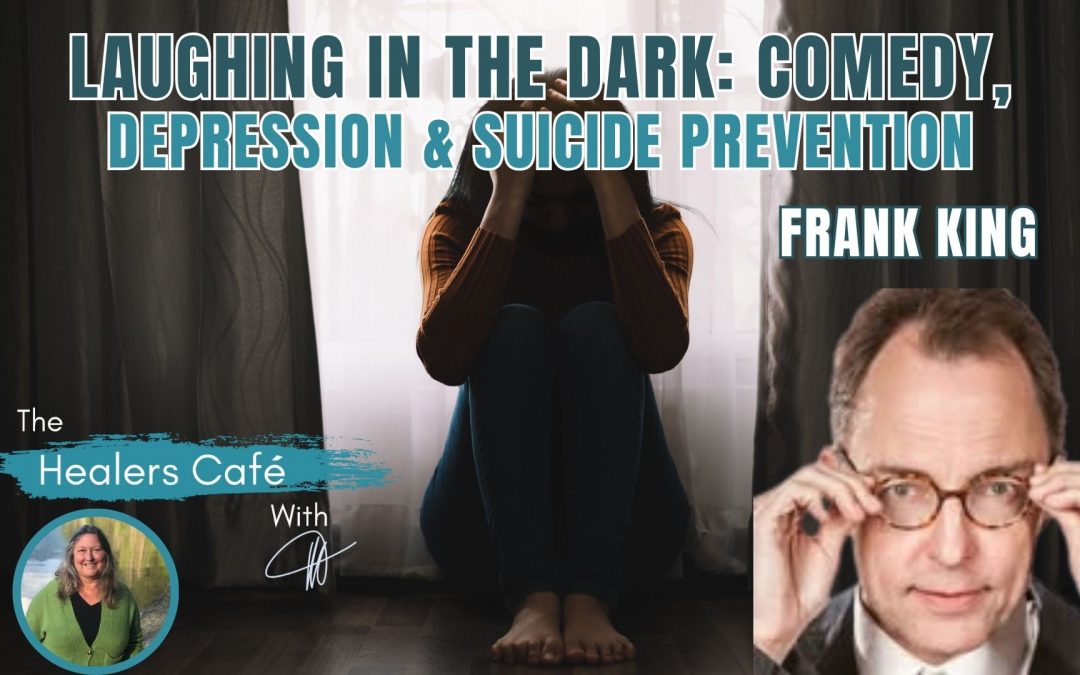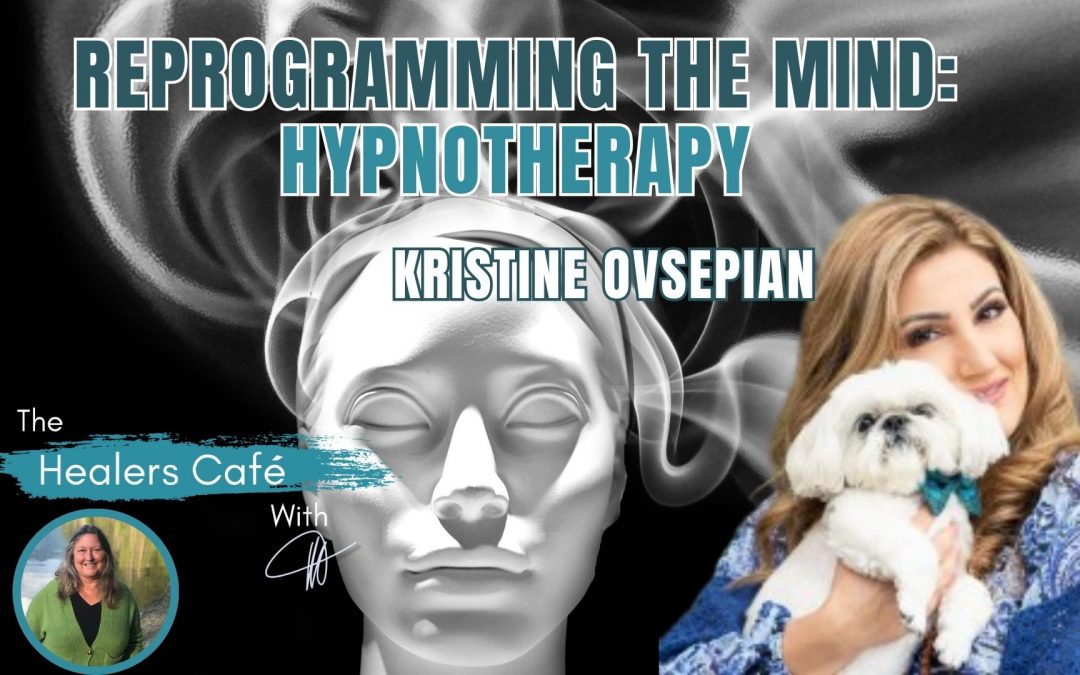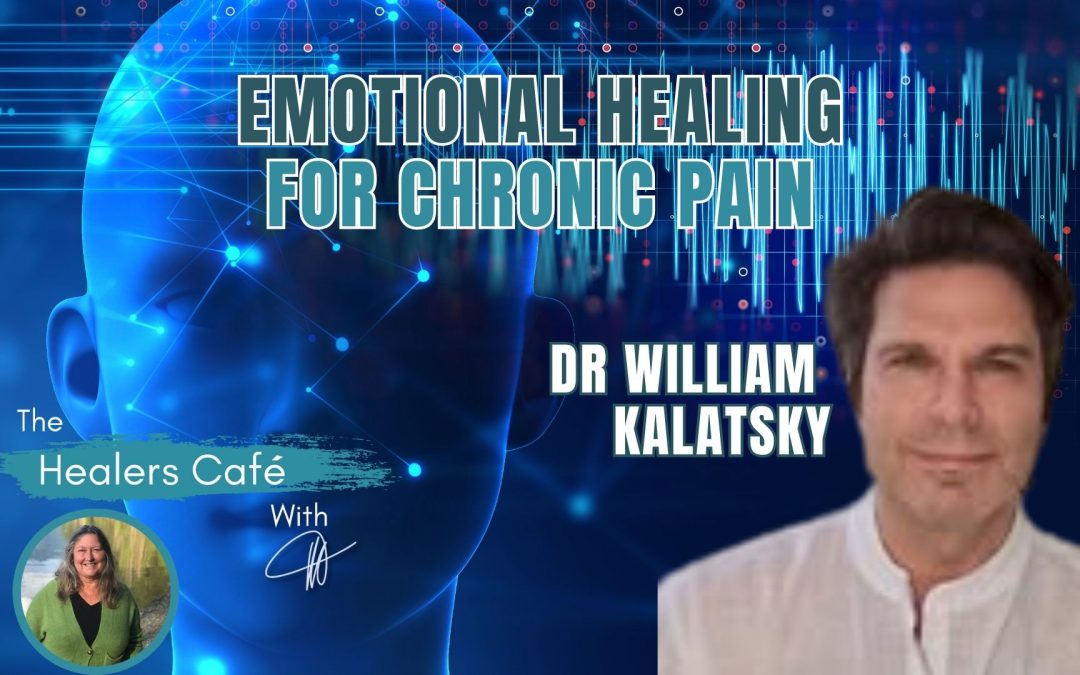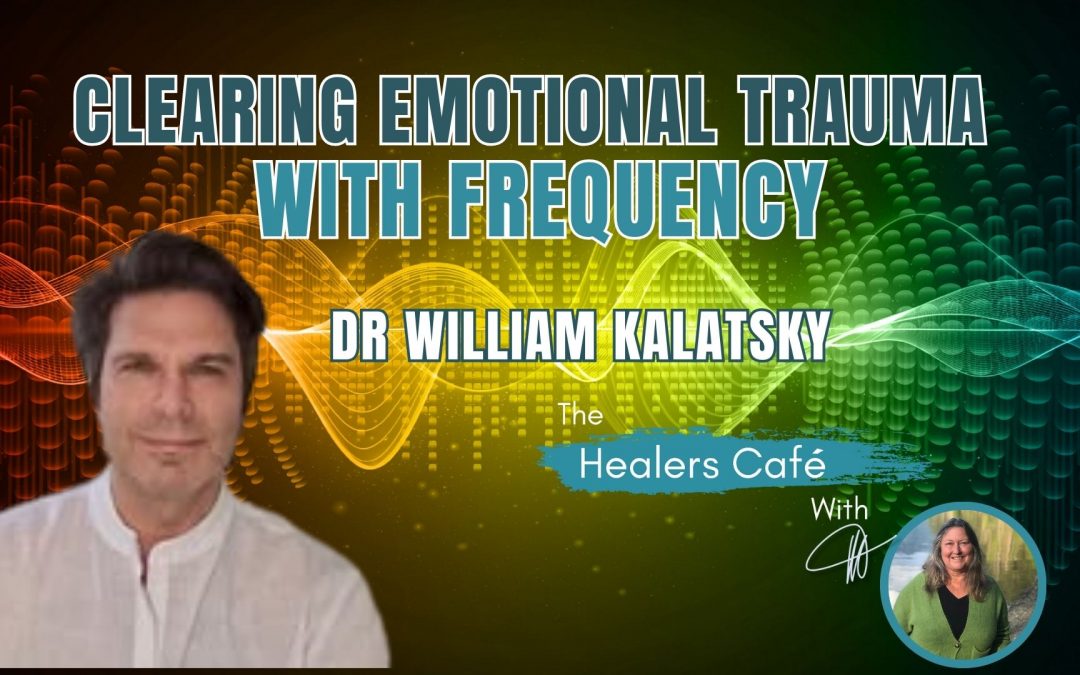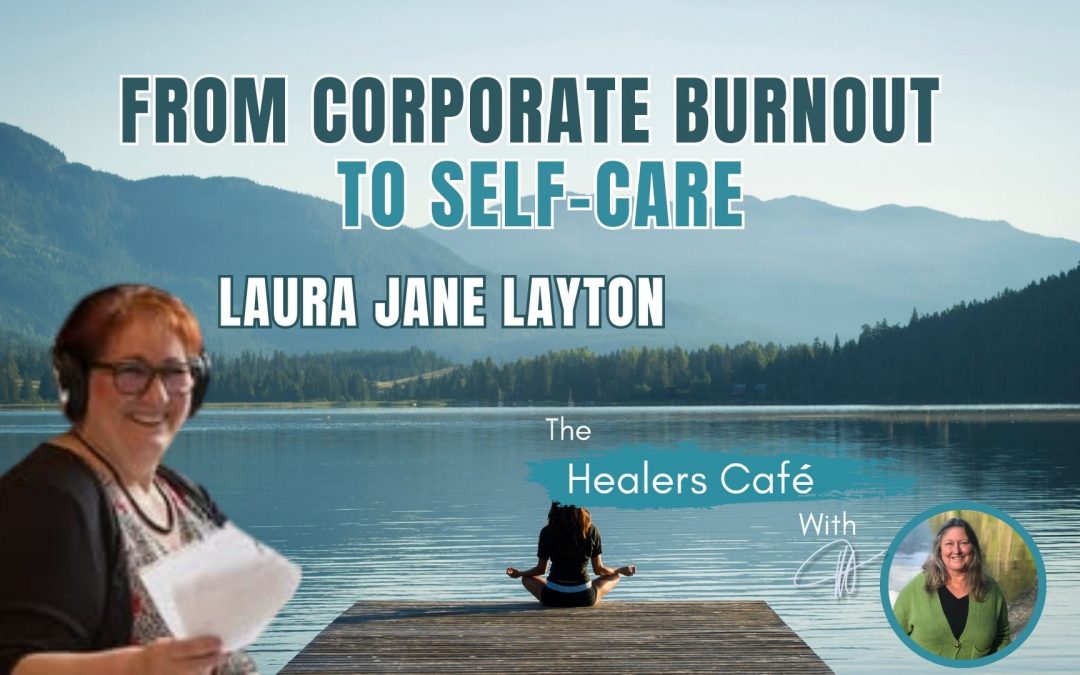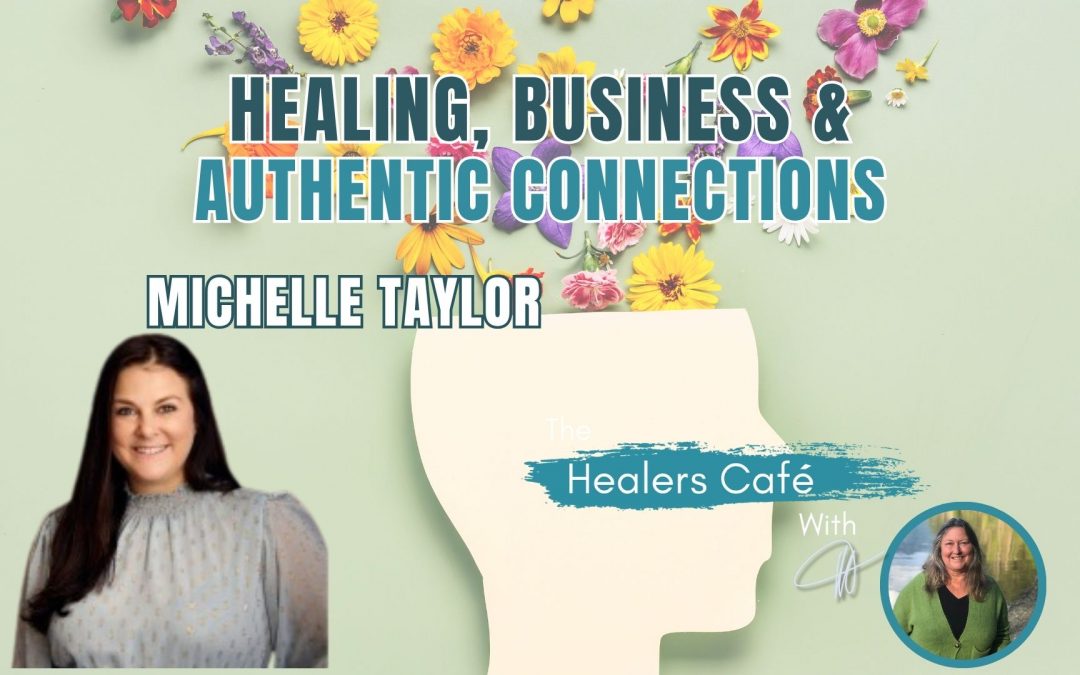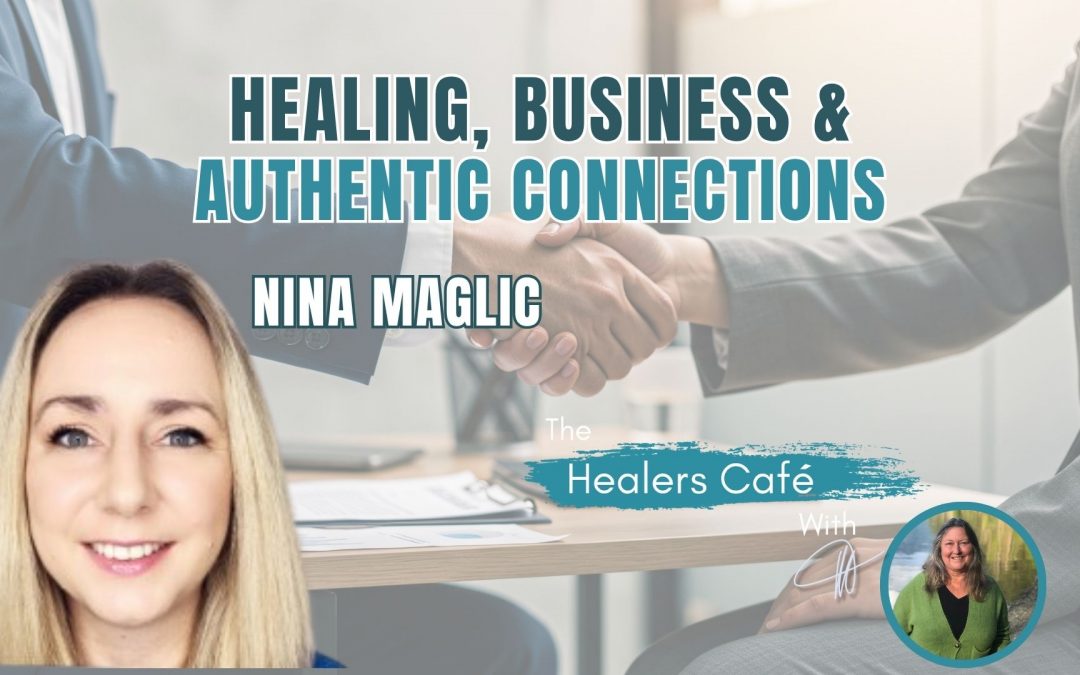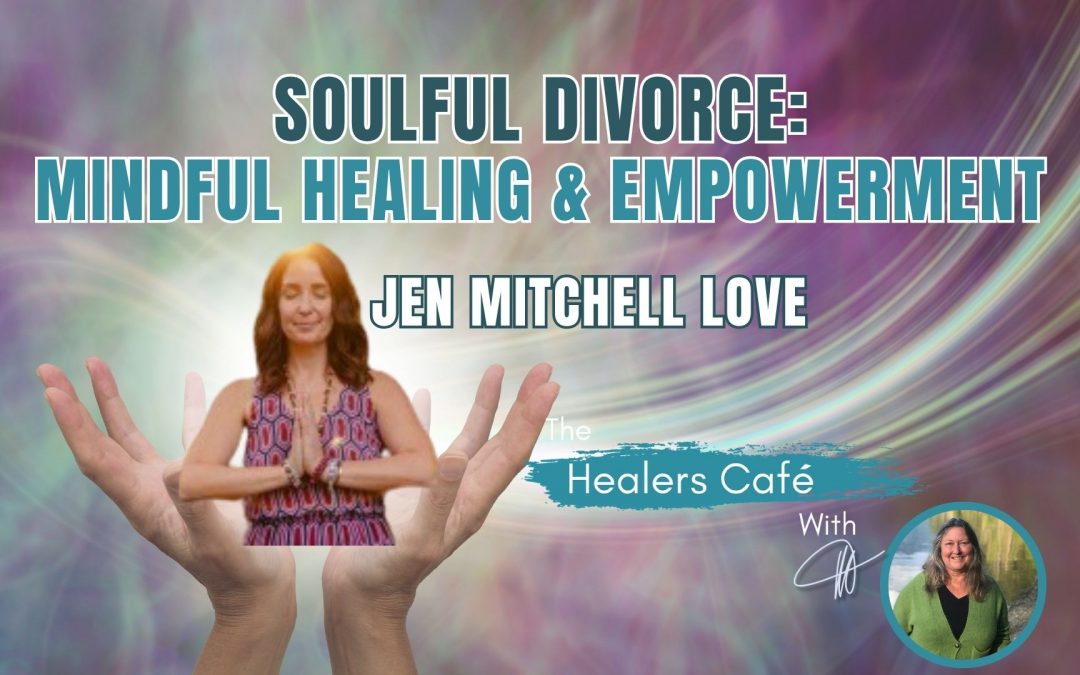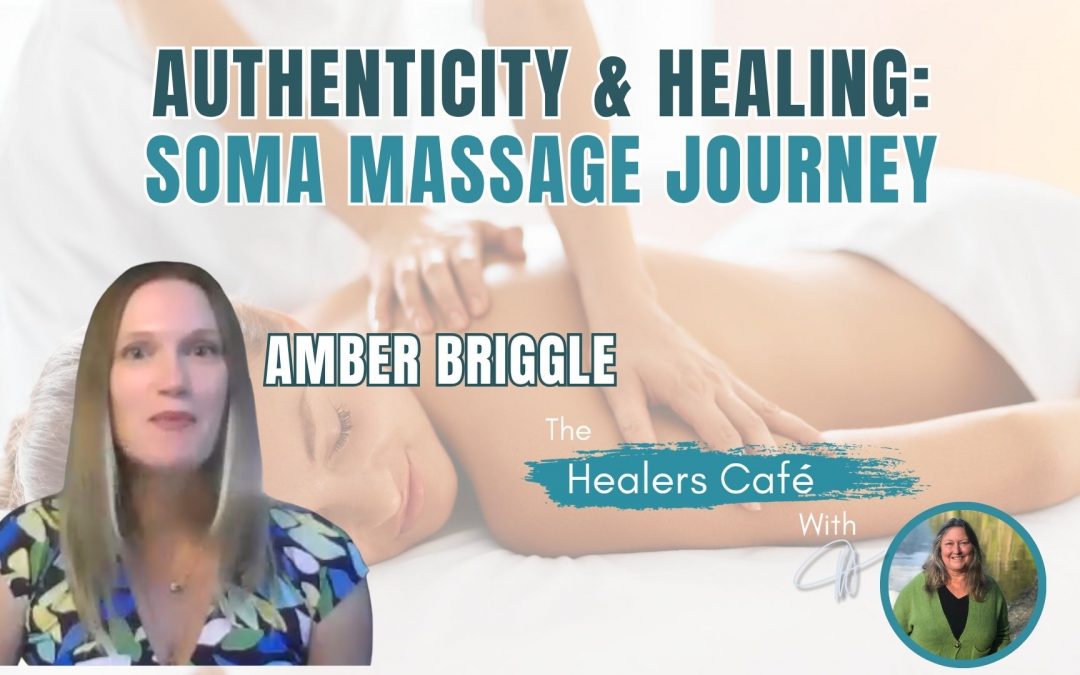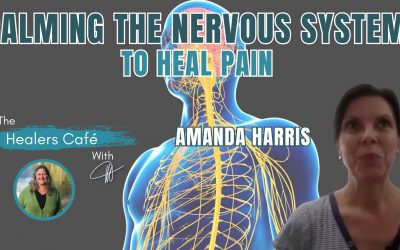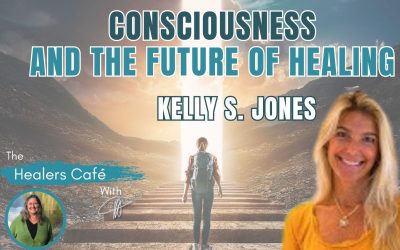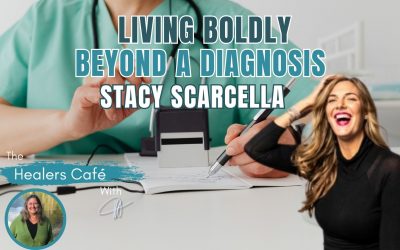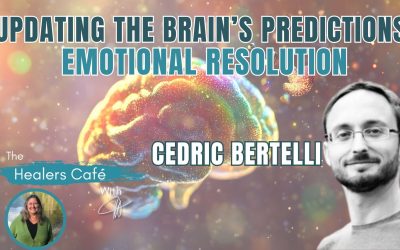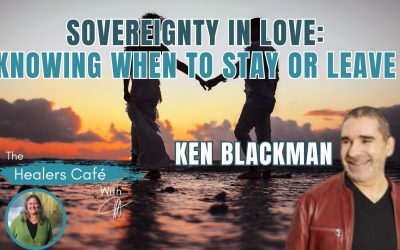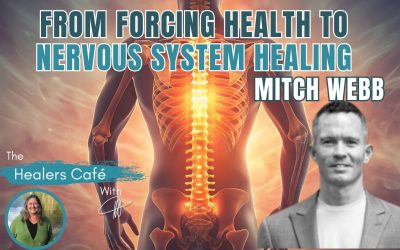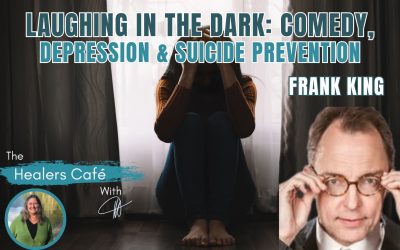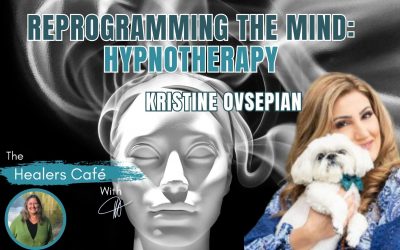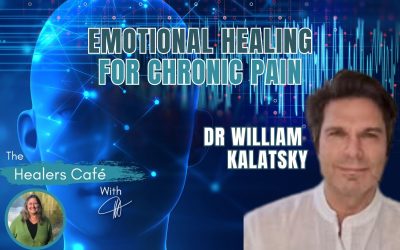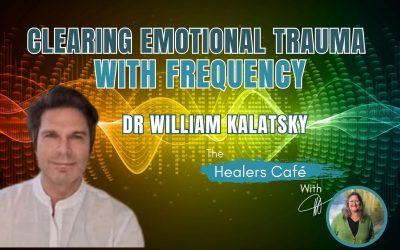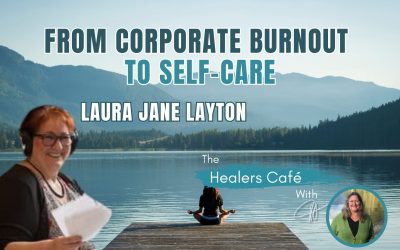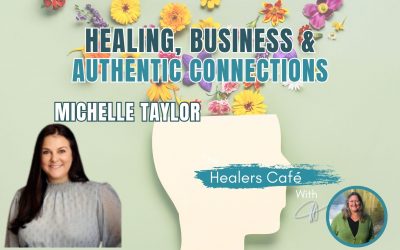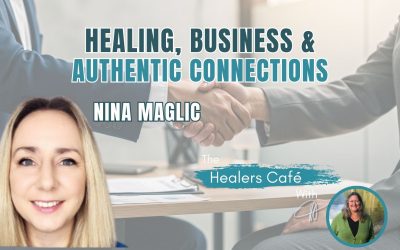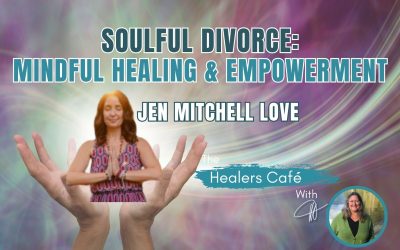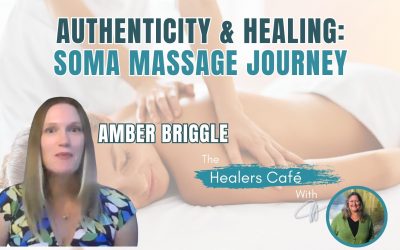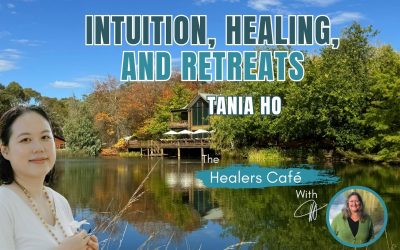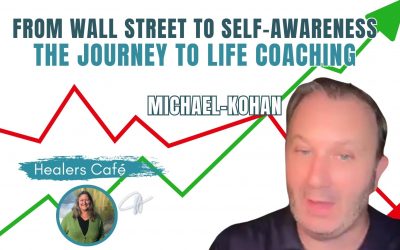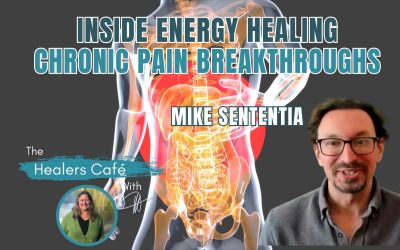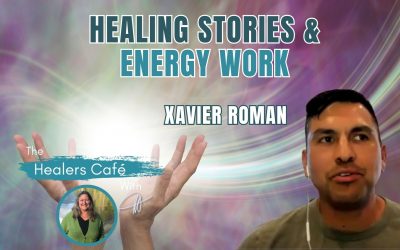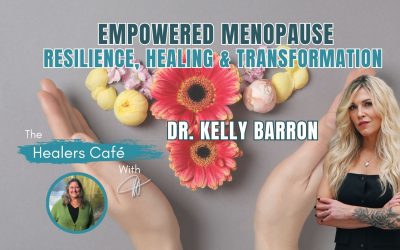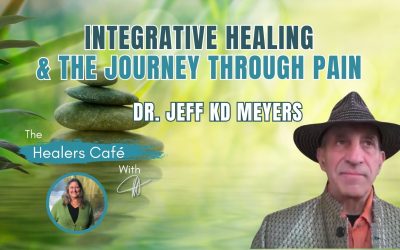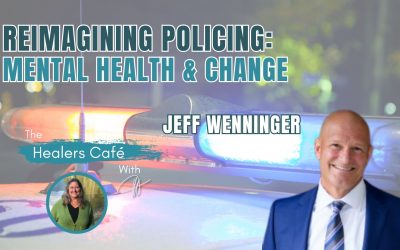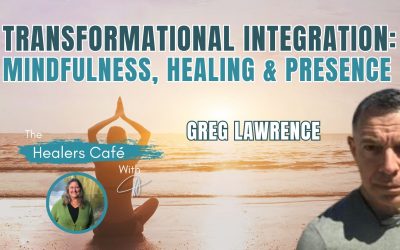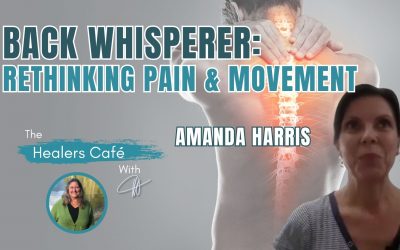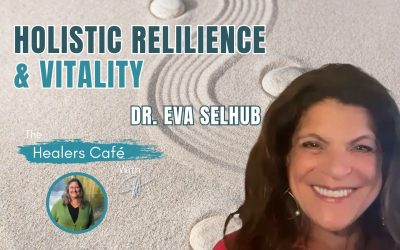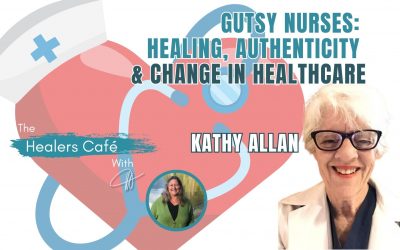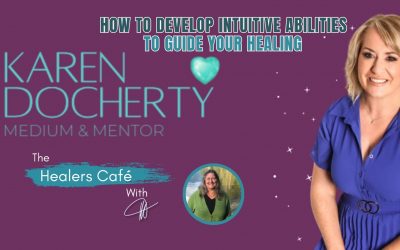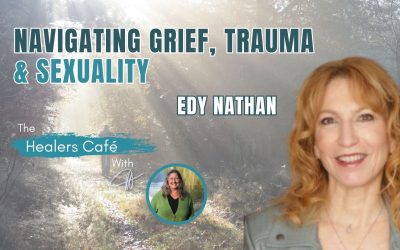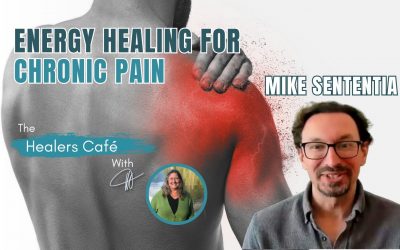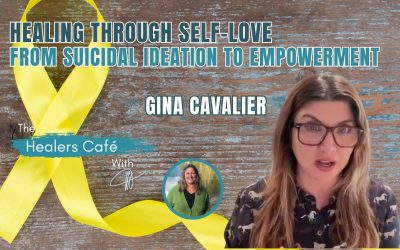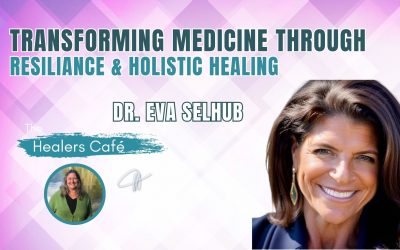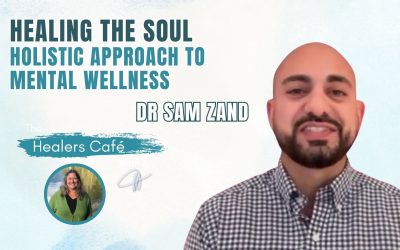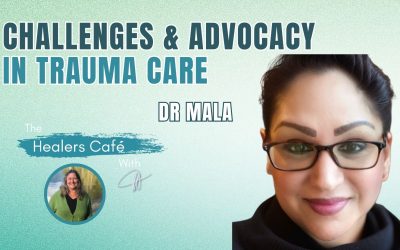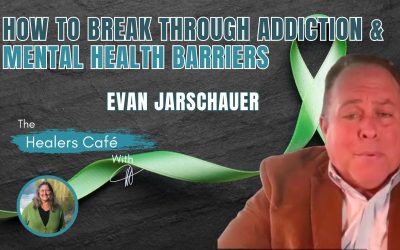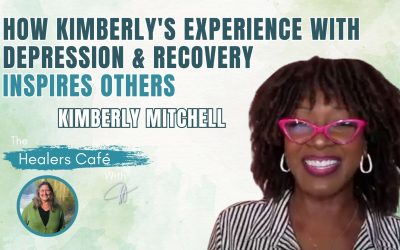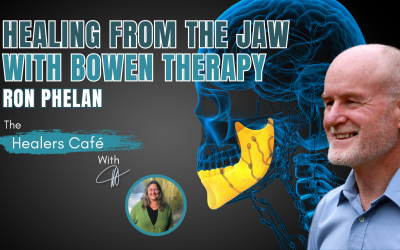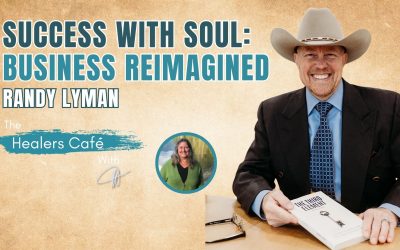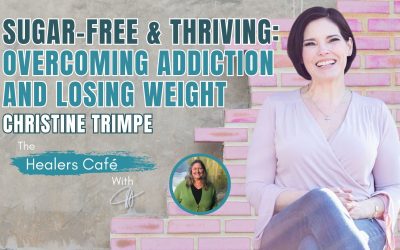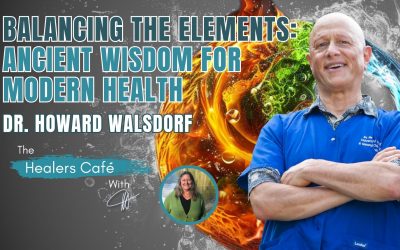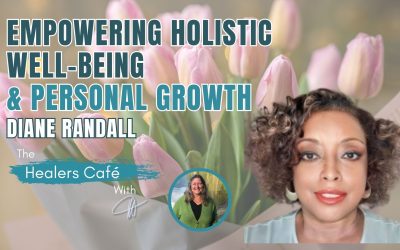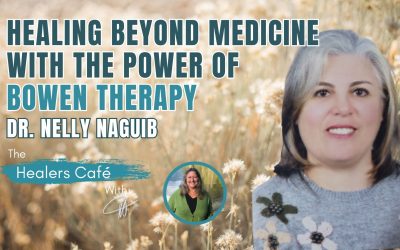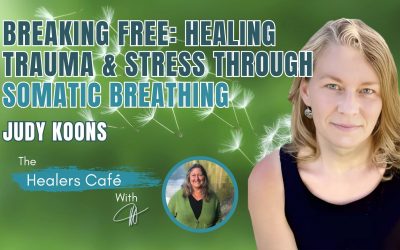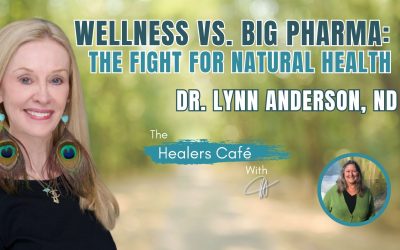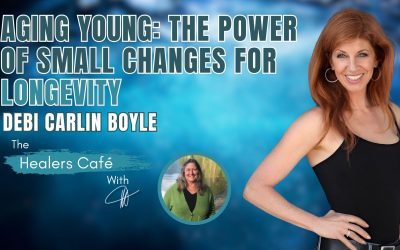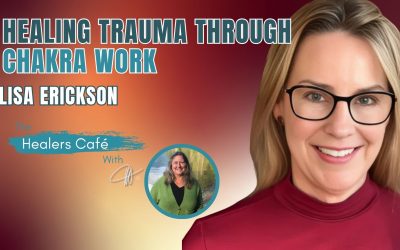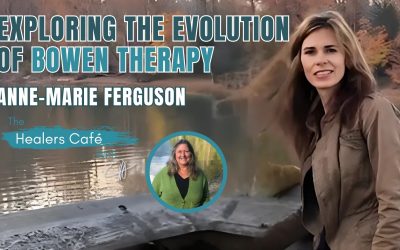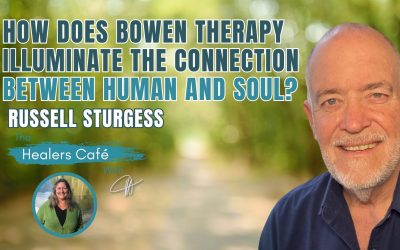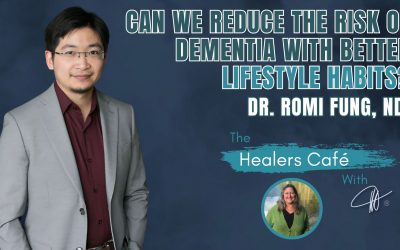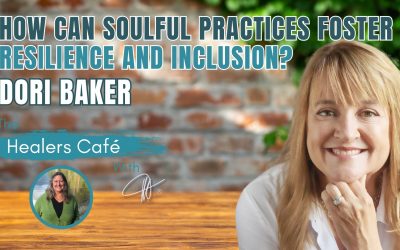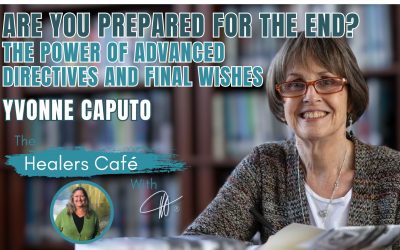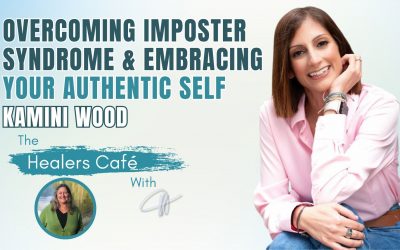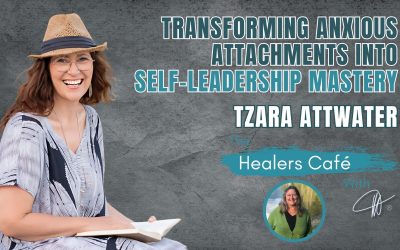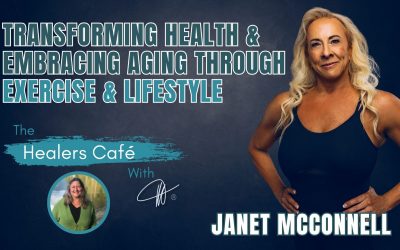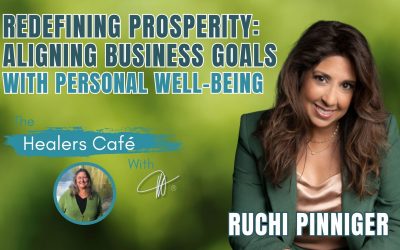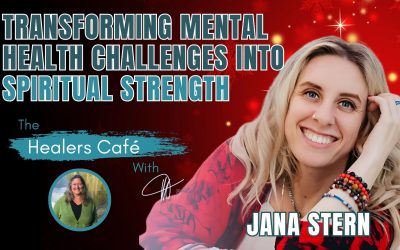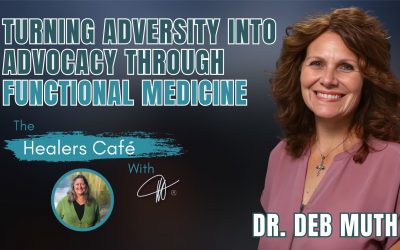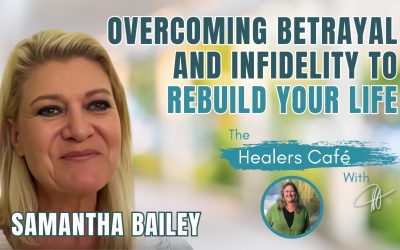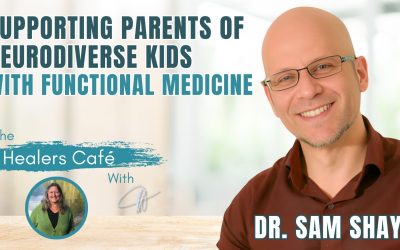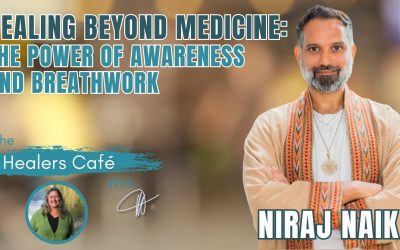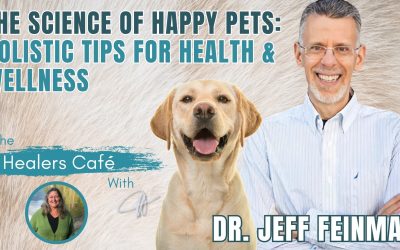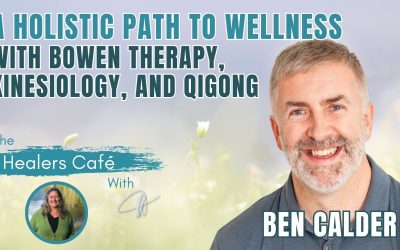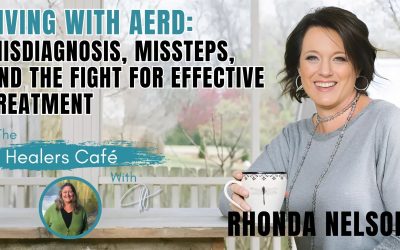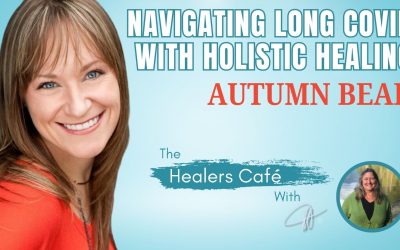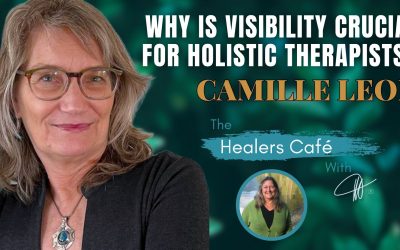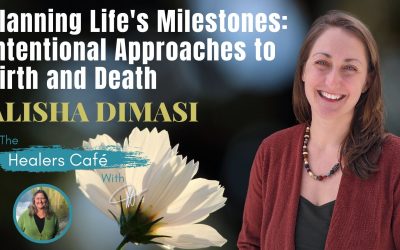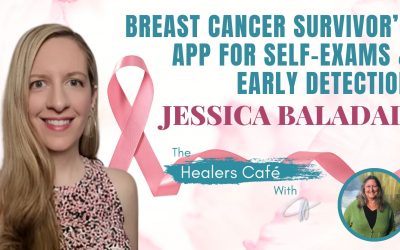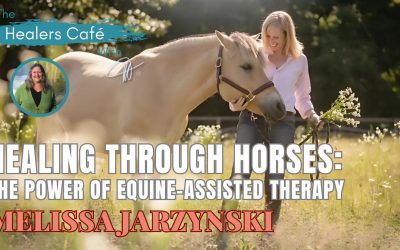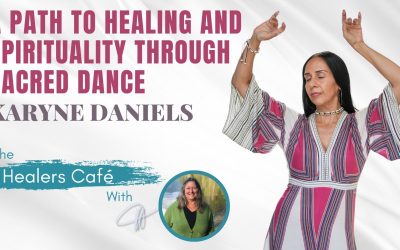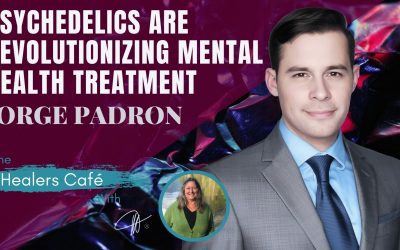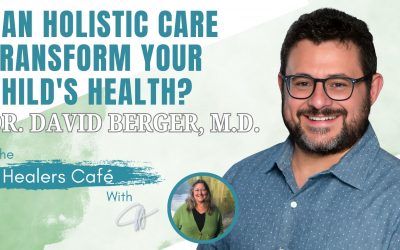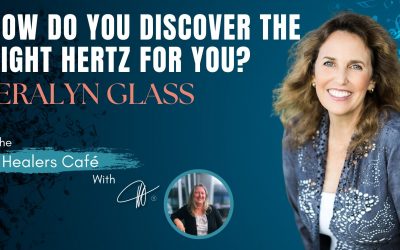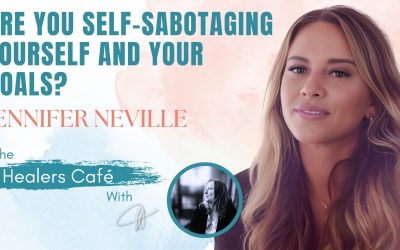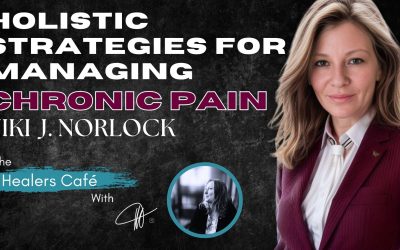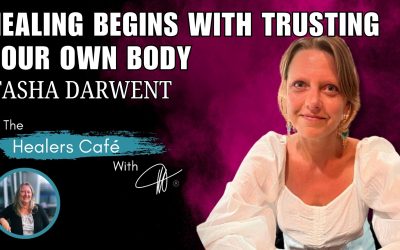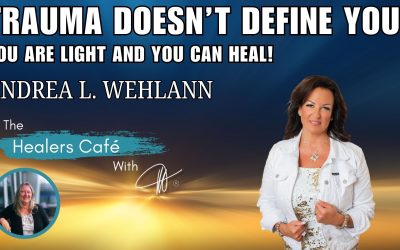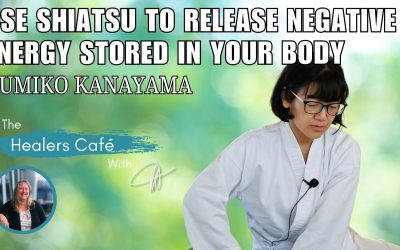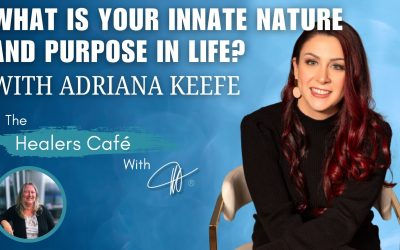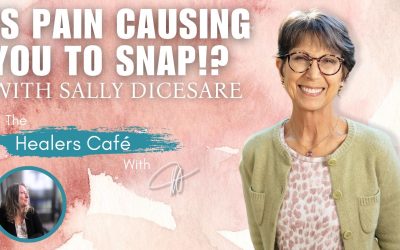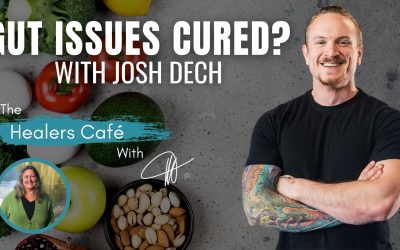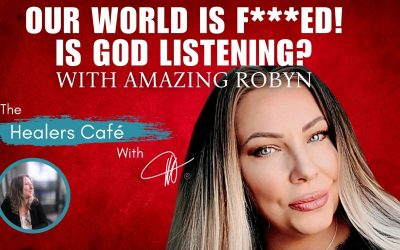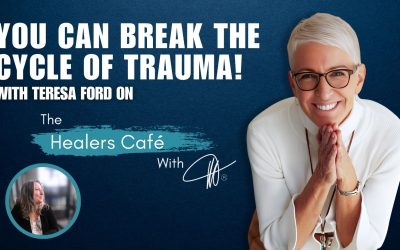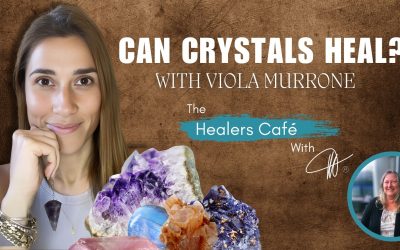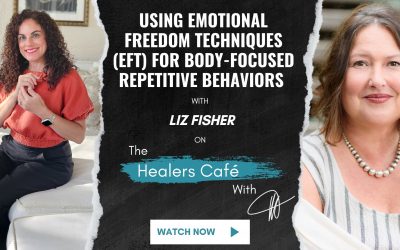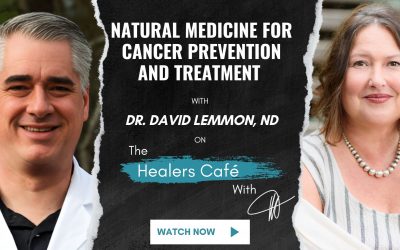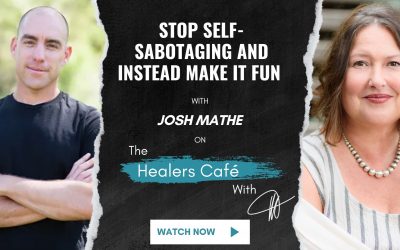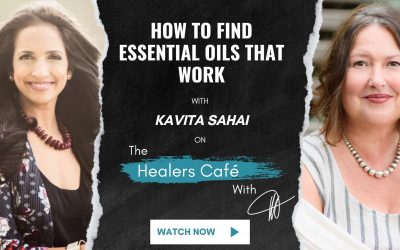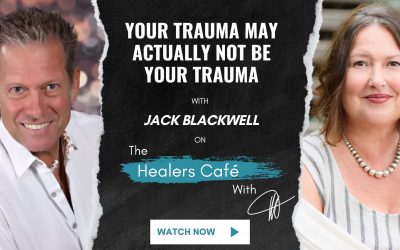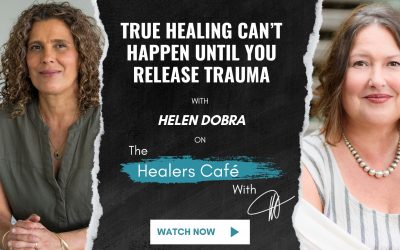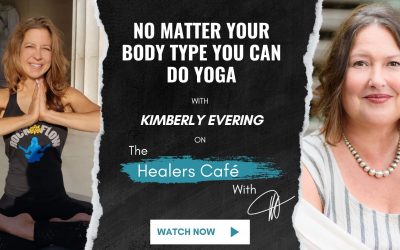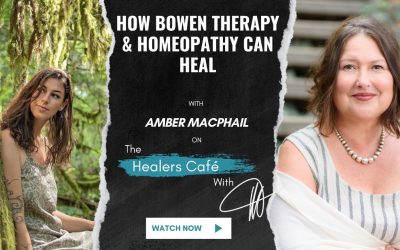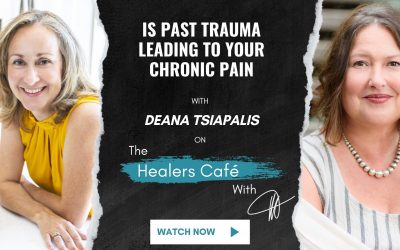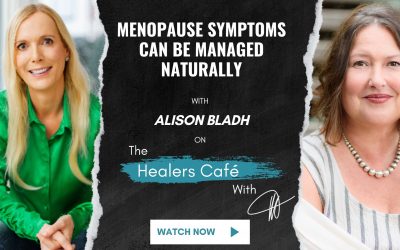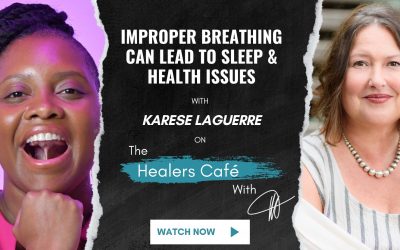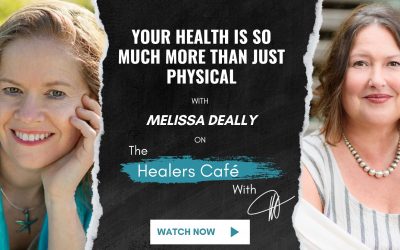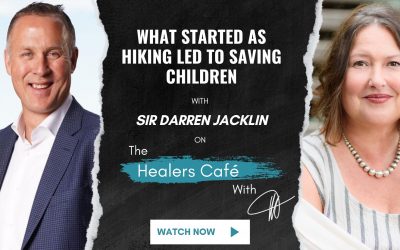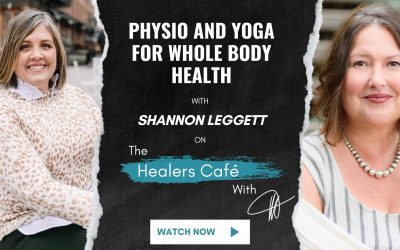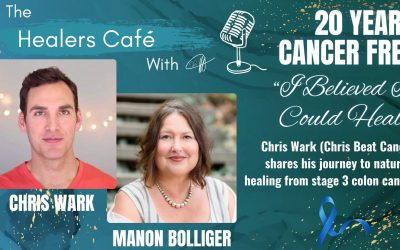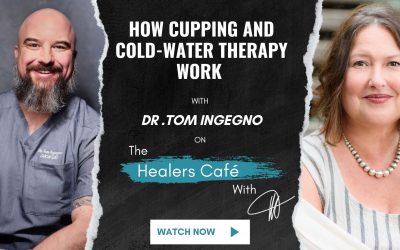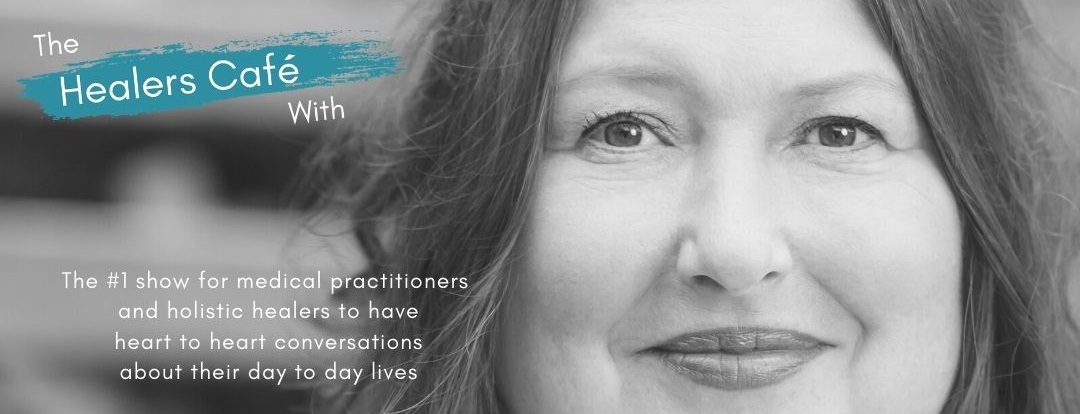
If you haven’t done so, would you please RATE and REVIEW The Healers Café podcast? It definitely is appreciated
Follow / Listen to The Healers Cafe on:
iTunes | Google Play | Spotify, | Libsyn | iHeartRadio | Gaana | The Healers Cafe | Radio.com | and many more
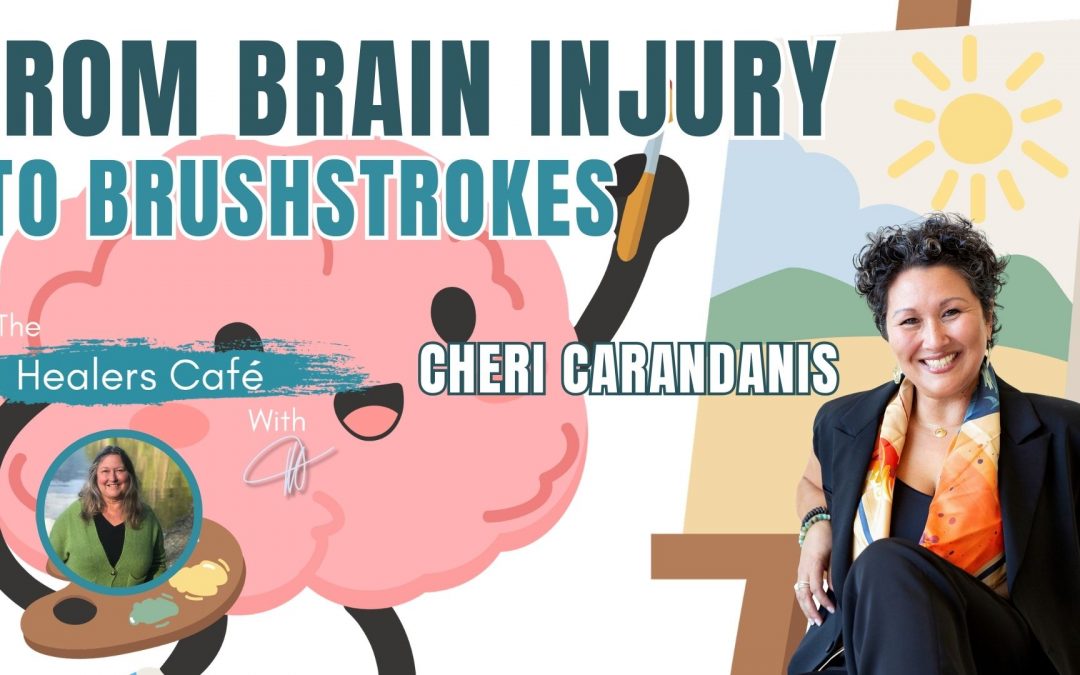
Cheri Carandanis
From Brain Injury to Brushstrokes with Cheri Carandanis & Manon on The Healers Café
In this episode of The Healers Café, Manon Bolliger, FCAH, RBHT (facilitator and retired naturopath with 30+ years of practice) speaks to Cheri Carandanis, an abstract painter and former Air Force critical care nurse, shared her journey from pre-med studies to nursing, driven by her desire to balance career and family. She transitioned to the military, specializing in ICU and CCAT teams, and served in Afghanistan post-9/11. After separating from the military, she pursued hospice nursing and earned a master’s degree in nursing. In 2019, she suffered two brain injuries, leading to cognitive and vestibular issues, forcing her to retire her nursing license. Through functional neurology and alternative therapies, she recovered significantly, emphasizing the importance of creativity and mindfulness in healing.
Highlights from today’s episode include:
When I paint, I don’t have a brain injury.” – Abstract art and flow state became a powerful part of her neurological and emotional healing after two brain injuries.
“If you’ve seen one healing, you’ve seen one healing.” – Every healing journey is unique, and creativity, intuition, and somatic work can open paths that conventional medicine alone often can’t.
– – – – –
“Nothing’s really broken; it’s just not communicating how it should.” – The body often needs a reset, not a label, and approaches like Bowen and other body-centered work help “reboot” the nervous system so healing can happen.
ABOUT CHERI CARANDANIS:
Cheri Carandanis is an abstract painter, mixed media artist, and former Air Force Critical Care nurse who knows a thing or two about surviving what she never saw coming. After a traumatic brain injury ended her 25-year nursing career, she turned to art…not as a hobby, but as a lifeline.
Now based in Portland, Oregon, Cheri creates raw, emotionally layered work that invites connection and contemplation. Her paintings don’t try to explain everything—instead, they hold space for what’s been broken, unraveled, and rebuilt. Through texture, color, and bold mark-making, she explores themes of healing, resilience, and the beauty that often shows up after the fall.
Her story is one of reinvention, grit, and choosing creativity when everything else falls away.
Core purpose/passion: My core purpose is to create space for truth, the kind that lives in the body, not just the story. I’m passionate about art as a place where people can slow down, feel what they’ve been avoiding, and come back to themselves without being fixed or explained. I care about honest healing, not performative healing, and about beauty that holds weight, not escape. My work invites presence, courage, and staying with what’s real.
ABOUT MANON BOLLIGER, FCAH, RBHT
As a recently De-Registered board-certified naturopathic physician & in practice since 1992, I’ve seen an average of 150 patients per week and have helped people ranging from rural farmers in Nova Scotia to stressed out CEOs in Toronto to tri-athletes here in Vancouver.
My resolve to educate, empower and engage people to take charge of their own health is evident in my best-selling books: ‘What Patients Don’t Say if Doctors Don’t Ask: The Mindful Patient-Doctor Relationship’ and ‘A Healer in Every Household: Simple Solutions for Stress’. I also teach BowenFirst™ Therapy through Bowen College and hold transformational workshops to achieve these goals.
So, when I share with you that LISTENING to Your body is a game changer in the healing process, I am speaking from expertise and direct experience”.
Mission: A Healer in Every Household!
For more great information to go to her weekly blog: http://bowencollege.com/blog.
For tips on health & healing go to: https://www.drmanonbolliger.com/tips
SOCIAL MEDIA:
– Linktr.ee | Rumble | Gettr | Facebook | Instagram | LinkedIn | YouTube | Twitter |
About The Healers Café:
Manon’s show is the #1 show for medical practitioners and holistic healers to have heart to heart conversations about their day to day lives.
Subscribe and review on your favourite platform:
iTunes | Google Play | Spotify | Libsyn | iHeartRadio | Gaana | The Healers Cafe | Radio.com | Medioq | Audacy |
Follow The Healers Café on FB: https://www.facebook.com/thehealerscafe
Remember to subscribe if you like our videos. Click the bell if you want to be one of the first people notified of a new release.
* De-Registered, revoked & retired naturopathic physician after 30 years of practice in healthcare. Now resourceful & resolved to share with you all the tools to take care of your health & vitality!
TRANSCRIPT
Introduction 00:00
Welcome to the Healers Café. The number one show for medical practitioners and holistic healers, to have heart to heart conversations about their day to day lives, while sharing their expertise for improving your health and wellness.
Manon Bolliger 00:17
So welcome to the Healers Cafe. And today I have with me Cheri Carandanis. And she is an abstract painter, mixed media artist and a former Air Force critical care nurse. Yes, of course, there’s always a health component. So this is likely to be a very intriguing share. You know what happened? How are you? Yeah, like, I don’t want to give it away, really, so I think let’s just talk about, you know, your your, your life and well, first, what, what prompted you to go into nursing and critical care, maybe that’s the first part that we can go into what happened afterwards.
Cheri Carandanis 01:07
First, I’m so excited to be here, so thank you for having me on I think it’ll be a really fun conversation. I started off pre med actually, and in college, about my sophomore year, I I don’t know, I just had this wake up call, like, do I want to be a doctor? What does my life want to look like? And I knew I wanted an occupation or profession where I could step in and out, because I knew I wanted to be a mother and a wife someday. And so I I landed in nursing and and I think I just wanted to have the time and the capacity to connect with patients. And I know that physicians are just, there’s so much demanded of them that they don’t get that time that nurses do. So I was in nursing and I about a year out from graduation, I was just working on a trauma floor, and my father was in the Air Force for 26 years. So I grew up in the air force, and I swore I would never, never join the military, but one morning, I woke up and decided that’s what I was going to do, because I just couldn’t imagine waking up to the same job, to the same people. The military was just in my blood. And so I joined the military, and I was assigned as a new kind of a baby nurse. I was assigned to a med search floor, and after working there for a year, I asked if I could be retrained into some sort of ICU. They sent me to the NICU, and after one day, I said, No, this is not for me. They’re too tiny. I The babies are just so small. I just, I just knew in my gut that wasn’t for me. And so they put me in the ICU, and I loved it. I loved it. I learned so much. It was so challenging. I love the energy of the ICU, and so in the Air Force, I had the opportunity, they had a fairly new program rolling out called CCat teams, and that’s critical care air transport teams, and that’s where I would be trained to be deployed with a intensivist physician and a respiratory therapist and then a critical care nurse, and we would be outfitted to be able to set up mobile ICUs in any opportune aircraft in wartime situations. And so I was accepted and was trained to be a Seacat nurse. And then lo and behold, September 11 happens. And we decide, you know, not we decide, but the Air Force decides to go make this program go live. And so we were deployed, and I spent time in Afghanistan, and it was the honor of my life. It was, it was intense, but I feel like I was well trained and as prepared as I could be in a situation like that, and had the honor of caring for our troops and getting them home the best we could. So I did that, and after I got deployed and came back in about 2003 i i My husband and I thought we wanted to have children, and I just watched so many of my friends get deployed with children, and it was so painful to watch. And so I did separate from the military, because I did want to start a family with my husband. So I did separate and did some ICU nursing as a civilian, but then fell into hospice nursing. It was not something I planned. It was not something I really thought about doing ever, but I went to an interview and the nurse manager thought I’d be a really good hospice nurse. I said, I’ll give it a try. And I did, and I loved it. It was so great. And then, using my GI Bill, I was able to get my my master’s degree in nursing, and I became a nurse manager for the hospice. And so being able to take care of the nurses was even a greater honor. And I love that. I love that role. And then, well, I did that for a while, and then in 2019 the rug got pulled out from under me. I suffered two separate brain injuries. They were six months apart. And you know, as a nurse, I thought I understood brain injury. I thought there was lots of help for people with brain injury. I quickly learned that need I have no idea. I had no idea what brain injury felt like, and there wasn’t a lot of help for people with brain injury. I was told, you know, in my mind, I say Western medicine, but just kind of mainstream medicine that my insurance would cover, kind of told me, take an antidepressant, right? This is your new normal. And it was at the point, at the I that I was at was not good. I cognitively, I was having a lot of issues. Vestibularly, I was wrecked, constant tinnitus that was driving me insane, and I had speech problems, and they just there was no help that they could offer. And so I was I fell into a deep depression because I knew, first of all, after a couple of years, that I could not go back into nursing safely, cognitively, I knew I didn’t have that capacity anymore, and so I had to retire my nursing license, which heartbreaking.
Manon Bolliger 06:51
Wow,
Cheri Carandanis 06:51
it was my identity,
Manon Bolliger 06:52
and how did ..
Read more...
this happen to you, or how
Cheri Carandanis 06:56
the first injury was a result of a fall. And so I I was healthy. I was fine, and we were vacationing in Arizona, and they think that maybe I got dehydrated, which I don’t know, because I was very careful about hydrating myself and making sure, but maybe I was dehydrated, but I I passed out and hit the back of my head. And so that was the first one. And I went through all the, you know, concussion specialists and physical therapy and speech therapy and, you know, occupational therapy. And after, I don’t know, about four months, I thought, I’m not getting better. I feel like I should be getting better because I’m doing all their I’m being a very compliant patient. I’m listening to everything they’re saying, and I’m not feeling like I’m getting better. And then at the six month mark, as my my father was taking me to an appointment, actually, for vision therapy. We got in a car accident, and so then that was my second and that just really, really rocked me. And so I had from that one, I had mobility issues with my left leg, I had speech issues, and then whatever I was suffering cognitively, just an amplified Yes, yes. Yes. And so I went back to the neurologist, went back to, you know, physical therapy, and the neurologist just, you know, kind of dismissed. I felt very dismissed. And as a and as someone who advocates for people and advocates for patients, I was really like, I’m going to advocate for myself, because this isn’t okay. You can’t just tell me this is my new normal and take an antidepressant like that doesn’t sound right to me. And so I started researching, there has to be help. There has to be more. And so I did find functional neurology, and I found nature. My naturopath was huge in helping me. Unfortunately, all of those things are not covered by insurance, and they’re
Manon Bolliger 09:07
not now, but they, I think they will be. I pray
Cheri Carandanis 09:11
every day. I pray because people should have access to this kind of care. So then that opened my whole world up into alternative therapies, and in that all of those modalities teach me to get in touch with myself. As a nurse i i was in touch with everyone
Manon Bolliger 09:32
else, Exactly, yep. And so it
Cheri Carandanis 09:34
really guided me inward. And so it kind of was like all the planets started to align for me, like I was getting the help I needed, I was getting the support I needed. Thank God that we are privileged enough to be able to afford some of those modalities. But really, I just did my homework and took the homework with me, because we couldn’t afford to keep going forever and. To the treatments, but I did, you know, we paid for what we could. I took it home, and I did the homework, and I think that’s what gave me some hope that, you know, maybe this isn’t my new normal, maybe I can get better, right? It was a long road, and I learned quickly that the brain has a lot of neuroplasticity, and it is able to heal. It takes its time doing it slow healing process. But I was even able to go to Dr Daniel Amen, the Amen clinic. Oh, yeah. And that was fascinating. I learned so much more about my brain than just what happened with the brain injury. And so with their help, I was able to get on a good diet, and some, you know, the right supplements, and not taking everything under the sun, but just really targeting what’s going to help me. And so with this little team in place, especially my functional neurologist, I started to get better. And so now I’m about seven years out, and I’d say I’m like 80 90% there. I have good days, I have bad days, but gratefully, there are way more good days than bad days now. And so I don’t I don’t even mind if I’m left with what I’m left with, as far as my symptoms. Yeah, I feel like I’m doing so much better than I used to, yeah, and without hope, I had
Manon Bolliger 11:28
no and so the the art, because, I mean, art is known to be one of the therapeutic modalities that helps. But what was your did you just come across it? Did you know about it? Did you
Cheri Carandanis 11:46
I knew nothing about healing. I knew nothing about art in general. I always say my kids never even got a scrapbook page for me because I just I didn’t do crafts or anything like that. But I was in with my psychologist and one of my functional neurologists, and they both kind of said the same thing, which told me this is a message I need to listen to. They say, you know, most of your injuries on the left side of your brain, so we need to go into the right side and fire that up. We need to get the healthy side really fired up so we can start making some connections there. And I said, awesome, I’m okay. What do I do? Make sense, right? And, yeah, they’re like, creativity, presence, mindfulness. I just started laughing. I said, No, I don’t do any of those things. I don’t know how to do any of those things. I’m not sure. And so my psychologist said Sheri, just start with an adult coloring book. Like, just get one of those mandala beautiful coloring books, sit down and just start there, see what happens. And so I did, and I colored for about 10 minutes, and hated every second. I ripped it up, I threw it away, and I thought, I’m in big trouble. I’m in big trouble because I can’t do these simple things that could be helping me. And as God would have it, I was watching YouTube because that was something I could do. Was watch YouTube. I saw an artist come across my feed, and she wasn’t just an artist, she was an abstract artist, and she was painting on large canvases. And as I don’t know what intrigued me, but I understood that she wasn’t painting landscapes or people. She was painting her feelings. I understood that immediately, that she was painting her feelings. So I was intrigued by that, and so I thought, I’m going to try that. And so my dad had just bought a big screen TV, and I went down to his house, and I cut out one of the sides of the cardboard and decided that’ll be my canvas, because I don’t want to spend any money on this, because I’ll probably hate it again. And then I got my kids paints out from school, their tempura pains from school, and I just started smearing paint, literally with my hands, onto this canvas. And something just sparked, just like, Wait, this feels good. This feels good. I’m just going to keep doing this. And so I have a amazingly supportive husband, and he could see that something was happening, and he said, let’s, let’s follow this. Let, let’s really press into this. And so he got me paints. We got canvases, and the more I painted, I realized that when I paint, I don’t have a brain injury, like I forget that I have these awful things that I have to deal with every day, right? I was able to get into what I learned was flow state, which I didn’t know anything about flow state, and you go into this state where you don’t have to use the bathroom, you don’t have to drink water, you you. Just get lost in the creativity. And then I learned I don’t paint things. I paint intuitively. Sorry I had it on silent. And so then that put me into touch with my intuition, and that was a new lesson for me. So I learned that to get to know my intuition, I have to spend time with it. So then that led me into meditation, and that just opened up everything as far as healing, because I felt like that was the foundation I was trying to heal from up here, right? Trying to heal from my knowledge, I had to move down into my soul and heal from there. This would catch up eventually, but when I learned, but it’s I love, the way I say, God just aligned everything for me, and just one step at a time I learned. It wasn’t all a big download. It was just one thing at a time leading to the next thing for me to learn. And one of my favorite things quotes that I like, and I think it was, it was a it was a Buddhist quote, and it says that when the student is ready, the teachers appear, right? That is so true, whether it’s podcasts or books or, you know, whatever it is, it comes into your life when you’re ready. And yeah, I was certainly ready to figure out how to heal and not in the way that I was trained. You know, as a nurse in western medicine, I was trained to heal a certain way. Well, it wasn’t working. That wasn’t working. So realizing that my body wants to heal and it knows how to heal, yeah, like, I want to figure it out. That’s incredible.
Commercial Break 16:58
What would your life be like if you are pain free, if you are one of the millions who suffer from chronic pain, the thought of just one day without it may seem impossible. This is often because conventional medicine tends to fall short in the treatment of pain, opting to prescribe pills or recommend surgery rather than getting to the root cause of the problem. But if you are suffering with emotional or physical pain, there is hope. Join the founder and CEO of Bowen College, Manon Bolliger, live online for your body mind reboot. Learn how to listen to your symptoms and get to the root cause of your pain, plus be trained in basic Bowen therapy moves so that you can reboot your body for optimal health. You don’t have to live in pain. You can heal, stop the pain pill cycle by visiting www.yourbodymindreboot.com, to learn more and to register.
Manon Bolliger 18:09
But that’s the mind shift, right? That is the difference. If you’re going to generalize, I mean, there’s an end again. It’s not the people who do it right, because they come from vast difference beliefs and knowledge base, you know, but it really is that idea that you know one, you’re you’re you’re the facilitator, and you’re the one doing the action to help the other person. And you’re, in a sense, the the powerhouse, and they’re the receiver to this other idea that it’s actually the patient, the client, the person doing the healing. And you’re, you’re receiving the information step by step. You know, as as much as you can take it, you know, in the right rate, the right speed, and you’re gonna like, it can be a lot like, that was a lot, yeah. And you could never decide it, yeah. You can never decide it as from the same mind that was injured. It really comes from having to see the world in a different way, right, and then follow the lead, right? So it’s yeah, no
Cheri Carandanis 19:23
changed my entire that mindset shift changed my entire life, not just how my body healed, but how I see myself, how I see the world, how I see other people. There’s so much compassion, there’s so much just i think i i, we all feel this need to be heard and understood when, if we could just take the time to hear and understand ourselves. Yes, then there’s not that need that, you know, that frustration and so spending time with myself and learning the. About me. And then that just opened up all kinds of like there was trauma that I never dealt with, you know, that I just buried down and that. And you know, Body Keeps the Score that will affect my health. So then I thought, nope, I want to do it all. I want to go on every level and discover how to bring health to this body and to maximize what it’s created to do, which is live, live.
Manon Bolliger 20:28
Yeah, exactly. So now that you know what you know, do you see any part of the art journey that might have made sense, not necessarily for you, because at that point you were the giver, but for the people, because you’ve had different medical exposures. You know, do you see that, that that path, art and or meditation, could have helped other people at the time, like, if you knew what you knew now, kind of thing,
Cheri Carandanis 21:10
absolutely, absolutely, and that’s why part of my my purpose now is to let People know how powerful creativity and mindfulness really is like I have been asked to speak to women’s groups, and especially perimenopausal that type, because I’m learning that perimenopause and menopause can often feel like a brain injury in many ways, and so teaching women that don’t Want to be professional artists, don’t want to make it their thing, but taking time to just create something, a meal, a garden, a flower arrangement, anything, anything that lights them up. It just brings that energy, that frequency like it. Makes your body primed to heal.
Manon Bolliger 22:04
And so it’s like the, it’s the feminine, right? It really, it’s bringing that back into balance in the world that we have allowed,
Cheri Carandanis 22:15
yeah, and I was, you know, I lived in that, especially in the military, and being a nurse, you’re always, you know, like, there’s that masculine you know, like, do it and you know. And then this healing journey has been very much in that, that frequency of the feminine, of nurturing and calming down, but not in a not, not in a way that’s like, soft and it’s, it’s very powerful. It’s a very powerful presence, like, I’ve got this, I’ve got this. I don’t need all the inputs that I believed about myself throughout my life because all of that went away with brain injury. You know, all of my accolades, all of my smart she is, and how multi she can multitask, that all went away. So I couldn’t tout that part of myself, which I think I did a lot, and now it’s just stripped down, bare naked me, and it’s awesome. It’s beautiful. It’s so freeing, and not really looking for, you know, anyone’s acceptance, you know, or any of that. It’s just being me, and being me opens me up to so many more people, because it’s that authentic connection that we Right exactly. Yeah.
Manon Bolliger 23:42
So are these pieces of your art behind you? Sure?
Cheri Carandanis 23:45
Yes, this one. This is a newer piece. It’s called I’m not just a number, because it came out of frustration. A couple weeks ago, I got a call from my insurance company saying they would no longer cover something for me that was helping me with my brain injury. And I was so upset, and I appealed it, and I I wrote my own prior auths and and they said no. And so I was so upset, not just for myself, but for everyone that is trying to get help and trying, and they pay into these insurance companies, you know, they they hope that when something bad happens, these insurance companies are going to help them. And I them, and they don’t. And so there was this frustration, I mean, not just for me, but for everyone, and for the fact that in our country, it feels like healthcare is a privilege and it’s a human right, like everyone should have the right to have a healthy life and to have access to health. And so that painting, I didn’t realize it, but after a few days of looking at it, I noticed there were a lot of bars in it, and I was like the bars. And then I realized, you know what? It’s like, a barcode, like just a barcode to them. I’m not, you know? A person with a story and relationships and this whole life, I’m just a barcode, and I did not meet their required boxes that needed to be checked. And so they said no. And it’s
Manon Bolliger 25:13
interesting, because the boxes are are very simple, right? It’s like it’s a profit driven system that really supports pharmaceuticals, not innovation, not cure, you know, as I mean, I’m
Cheri Carandanis 25:29
in prevention at this point, not
Manon Bolliger 25:31
even prevention, no, no, or what they call prevention. Prevention is poison. But anyway, it’s very scary, you know, but in that system, you’re not going to really get the support anyways. It doesn’t makes it’s not built for that. So just like every other institution, it has to be completely rethought, revamped and opened up to, you know, what is the purpose and what is it driven by? You know? And I think that’s the real, you know question. I mean, I, I was a naturopath, because I, I did lose my license for speaking, because I do live in Canada. So, you know, it’s complicated here. I mean, it is complicated in many places, but some places made more of a show of it, you know, anyway. But yeah, it’s, I would say it’s, you know, most people who go into naturopathy because you have to pay for it yourself, right? So you don’t get grants. You don’t get funding from, you know, a whole bunch of other research optics where they want you you know your knowledge because they know they’re going to get a piece because, and also, you can’t, what’s the word? You know, if you have natural foods, you can’t really get a patent on it, right, unless you profitable, unless you make it artificial, which is against the idea of what we do. So it’s like a misnomer that just, you know, I’m surprised we exist at all. It’s true in the system, you know, and, and it’s, it’s becoming so clear that we don’t belong in the system, you know, but we shouldn’t. It’s not like, Oh, we’re not good enough. No, no, we are quite good for the system, exactly, well. And it’s also like, it’s a bit like your experience of, you know, you develop another part of you, and you realize that you’re enough. You know you are full. This is the authentic you know, being that you know you you really were when you started this, until it got all, you know, mucked up with the energies of this other world, you know, as now we’re trying to be amalgamated all in one. It’s like, yeah, it’s troublesome
Cheri Carandanis 28:10
way that that magic, oh, who we are as individuals and as human beings. And I want to stay in the magic. And, you know, it’s so it’s so ironic that we fight so hard to be in the system like I thought it was my right, and we paid into this, and I want to be in that system and pay for my blah, whatever. Yeah, and no, I don’t. I don’t. I don’t want to be in that system. And, you know, we, I have a I have a very deep faith, and I just asked God whatever treatments I need to get to the place I need to be able to put love out into the world again and to serve others again in whatever way that looks. I never thought it would be. As a artist, it was not on my radar. But thank God, I’m not in charge. I’m not in control. My Spirit wanted that. I didn’t know it did, but he was hungry for that. It was so hungry. And now that I’m in this space, I would do it all over again. I would do it all over again. My husband, when I said that to him, I said, you know, I’d have brain injury again to be in this place. Wow, was like the hell we went through, hell we went through. For you to say, That’s a miracle, yeah, miracle. And I said, it really is. I’m glad it happened. I’m glad it wasn’t worse, because it could have certainly been worse, but it’s taught me so much. It’s taught through so many ways, not just healing, but meeting the right people and learning about the soul and me and my intuition and the world and our connection to each other, that we’re all connected. I. Never thought about that. No, yeah, but now I can’t. I’m obsessed.
Manon Bolliger 30:08
Yeah, I think it’s a great message, really, to to wrap up her session, but it’s like people who receive a diagnosis, even if they don’t know what it is, because sometimes whatever, but you know that you can’t function. It’s like, just, just wait a minute, you know, see, and then look, look outside of what box you’re in, whatever box you’re in, and see, because I, I think it’s always in hindsight, we get these like, oh my goodness, I would do it again, you know, and it’s
Cheri Carandanis 30:41
like, but never in the moment. My side is definitely 2020, yeah. And I really do believe our bodies have the answers. We just have to listen and learn how to listen. And I think that’s the first step, is getting in touch with ourselves and and learning how to listen to our intuition, because it has the answers and wants to guide us.
Manon Bolliger 31:07
Actually, I have one more question for you that, did you do any physical therapy? Okay, yeah, which types or that had the impact on you
Cheri Carandanis 31:23
that helped me? Yeah, it was all through the functional neurologist, okay, and so it was a lot of I always felt like I was going to space camp when I went into functional neurology, to say the most bizarre things, like putting me in a big cage that flipped me around. It was like the gyrostim is called the gyros. They put me in the hyperbaric chamber. They did VR glasses, so kind of retraining that vestibular system. It all felt like it was making it worse. Like I would always tell the doctor, I think it worse by that, he goes, No, we’re resetting, we’re retraining. We’re only going to do baby steps, and that’s what. Because when I went to the other physical therapy, regular physical therapy, after going for about a year and a half, he’s like, Cherie, there’s nothing else I can offer. Like, I feel like we’ve offered everything, and you’re not getting better with your vestibular system. So it was functional neurology that really helped me first. I mean, within eight weeks, my speech came back, and that was through electrical stimulation on my big toe and my tongue and just these bizarre things. This is not gonna I’m not sure what, but I was desperate, and I was willing to try anything. And lo and behold, they know what they’re doing.
Manon Bolliger 32:48
Well, no, because I ask, also because I have a college called Bowen College, and we do Bowen therapy, and it is a reset to the nervous system, and I’ve actually had quite a lot of success, and so my students, obviously, you know, with brain injury. So I was curious whether, you know, it’s touch, or it’s that touch, because it’s very little touch. It’s, it’s an unusual technique. It’s mostly hands off, but you kind of reset the body by doing certain moves in certain places.
Cheri Carandanis 33:32
And it’s like an energetic modality, like you’re
Manon Bolliger 33:36
you know, the massage therapists who have learned it hate to use the word energy, because they like to think it’s all physical, but the Cairo’s are okay. Or osteopaths, they see it more as it could be energy, but it follow meridian lines, some of the cases, not all cases, it really works with a fascia, and it helps, sort of detox and drain, but it really resets the neurology. So I was curious if,
Cheri Carandanis 34:08
God bless you for putting that out in the world, that’s what we need. Like, I went to craniosacral like that. I didn’t think was going to help, but it does. It does help? Yeah. Well, therapy helps.
Manon Bolliger 34:22
Yeah, it does. Yeah, that’s it, yeah, and I’m just mentioning it in case, you know, people are in the situation you’re in. They haven’t heard about it. It’s just yeah, good to know about that.
Cheri Carandanis 34:35
Yeah, it makes sense. A reset electrical right? When our computers freak out, we reset them,
Manon Bolliger 34:44
actually, that is why I call, I call one of my programs reboot, because I used to call my son all the time. I don’t know what to do. I can’t get like and he goes, Mom, you know, just shut it down and reboot and and. And after 50 times slow learner, you know, just like, I’d rather call him an angst than Yes, take a breath and go, Okay, you know what? I’m just gonna reboot.
Cheri Carandanis 35:13
Not it works.
Manon Bolliger 35:16
And then the body, I had no problem understanding that concept. So it’s like, name the program that right? Because it’s just reboot, and that’s it, you know. And then it’s, it’s like, nothing’s really broken. It’s just not communicating how it should, or how it did, you know, that’s right, yeah, which is what I find fascinating, that they decided, or whoever it was, that you have to work the right side of your brain to activate and make new synapses with the left right, makes perfect sense,
Cheri Carandanis 35:49
it does. But then how,
Manon Bolliger 35:53
oh, yeah, that part we do not for me,
Cheri Carandanis 35:57
it was a paintbrush.
Manon Bolliger 36:00
But that’s exactly it, right? It’s, it’s a different, it’ll be different for everyone, right?
Cheri Carandanis 36:06
Yeah, that’s the beauty of medicine, right? Or, or healing, I shouldn’t even exactly, is that if you’ve seen one healing, you’ve seen one healing, exactly,
Manon Bolliger 36:17
yeah, okay, well, I’m gonna need to end it here, but thank you so much for sharing your experience and
Cheri Carandanis 36:25
your conversation. Thank you for having me the
Manon Bolliger 36:28
comment I wanted to reiterate from my conversation with Cheri Carandanis is the importance of body work, right, of somatic work. And you know her journey starting with a prescription of antidepressants. It’s so far out of touch, no pun intended to what is really needed for a body to heal. But when you have brain injury, there are people who still believe that it’s just in the head and the body and the whole nervous system is not impacted, and that couldn’t be further from the truth. So if you are new to this, definitely in this case, go to BowenCollege.com and find out what we offer. There are classes that are available just to the public that you can use, you know, for yourself and family. It’s done on another person, so you can’t do it to yourself, but the basis of it can help the basic program reboot can really help you a lot as well. Of course, if you become a practitioner and you work with a TMJ and and the coccyx, you’re going to have a lot more impact in the cases that don’t respond as quickly to reboot
ENDING:
Thank you for joining us at the Healers Café. If you haven’t already done so, please like, comment and subscribe with notifications on as I post a new podcast every Wednesday with tons of useful information and tips for natural healing that you won’t want to miss.
Continue your healing journey by visiting TheHealersCafe.com and her website and discover how to listen to your body and reboot optimal health or DrManonBolliger.com/tips.
* De-Registered, revoked & retired naturopathic physician, after 30 years of practice in healthcare. Now resourceful & resolved to share with you all the tools to take care of your health & vitality!
Other Episodes
Resources:
If you haven’t done so, would you please RATE and REVIEW The Healers Café podcast? It definitely is appreciated.
Follow / Listen to The Healers Cafe on:
iTunes | Google Play | Spotify, | Libsyn | iHeartRadio | Gaana | The Healers Cafe | Radio.com | and many more
Get This Episode
Amanda Harris2
Calming the Nervous System to Heal Pain with Amanda Harris & Manon on The Healers Café
Kelly S. Jones
Consciousness, and the Future of Healing with Kelly S. Jones & Manon on The Healers Café
Stacy Scarcella
Living Boldly Beyond a Diagnosis with Stacy Scarcella & Manon on The Healers Café
Cedric Bertelli
Updating the Brain’s Predictions: Emotional Resolution with Cedric Bertelli & Manon on The Healers Café
Ken Blackman
Sovereignty in Love- Knowing When to Stay or Leave with Ken Blackman & Manon on The Healers Café
Mitch Webb
From Forcing Health to Nervous System Healing with Mitch Webb & Manon on The Healers Café
Frank King
Laughing in the Dark: Comedy, Depression & Suicide Prevention with Frank King & Manon on The Healers Café
Kristine Ovsepian
Reprogramming the Mind: Hypnotherapy with Kristine Ovsepian & Manon on The Healers Café
Dr William Kalatsky part 2
Emotional Healing for Chronic Pain with Dr William Kalatsky & Manon on The Healers Café
Dr William Kalatsky
Clearing Emotional Trauma with Frequency with Dr William Kalatsky & Manon on The Healers Café
Laura Jane Layton
From Corporate Burnout to Self-Care with Laura Jane Layton & Manon on The Healers Café
Michelle Taylor
Empowering Women’s Health & Wealth with Michelle Taylor & Manon on The Healers Café
Nina Maglic
Healing, Business & Authentic Connections with Nina Maglic & Manon on The Healers Café
Jen Mitchell Love
Soulful Divorce: Mindful Healing & Empowerment with Jen Mitchell Love & Manon on The Healers Café
Amber Briggle
Authenticity & Healing: Soma Massage Journey with Amber Briggle & Manon on The Healers Café
Tania Ho
Intuition, Healing, and Retreats with Tania Ho & Manon on The Healers Café
Michael Kohan
From Wall Street to Self-Awareness – the Journey to Life Coach with Michael Kohan & Manon on The Healers Café
Mike Sententia
Inside Energy Healing: Chronic Pain Breakthroughs with Mike Sententia & Manon on The Healers Café
Xavier Roman
Healing Stories & Energy Work with Xavier Roman & Manon on The Healers Café
Dr Kelly Barron
Empowered Menopause: Resilience, Healing & Transformation with Dr Kelly Barron & Manon on The Healers Café
Dr Jeff MD Meyers
Integrative Healing & the Journey Through Pain with Dr Jeff KD Myers & Manon on The Healers Café
Jeff Wenninger
Reimagining Policing: Mental Health & Change with Jeff Wenninger on The Healers Café & Manon Bolliger
Greg Lawrence
Back Whisperer: Rethinking Chronic Pain & Movement with Amanda Harris on The Healers Café with Manon Bolliger
Amanda Harris
Back Whisperer: Rethinking Chronic Pain & Movement with Amanda Harris on The Healers Café with Manon Bolliger
Dr Eva Selhub2
Holistic Resilience and Vitality with Dr. Eva Selhub on The Healers Café with Manon Bolliger
Kathy Allan
Gutsy Nurses: Healing, Authenticity & Change in Healthcare with Kathy Allan on The Healers Café with Manon Bolliger
Karen Docherty
How to develop intuitive abilities to guide your healing with Karen Docherty on The Healers Café with Manon Bolliger
Edy Nathan
Navigating Grief, Trauma, & Sexuality with Edy Nathan on The Healers Café with Manon Bolliger
Mike Sententia
Energy Healing for Chronic Pain with Mike Sententia on The Healers Café with Manon Bolliger
Gina Cavalier
Healing Through Self-Love: Gina Cavalier’s Journey from Suicidal Ideation to Empowerment on The Healers Café with Manon Bolliger
Dr Eva Selhub
Transforming Medicine Through Resilience & Holistic Healing with Dr. Eva Selhub’s on The Healers Café with Manon Bolliger
Dr Sam Zand
Healing the Soul: A Holistic Approach to Mental Wellness with Dr Sam Zand on The Healers Café with Manon Bolliger
Dr Mala
Challenges and Advocacy in Trauma Care with Dr Malasri Chaudhery-Malgeri on The Healers Café with Manon Bolliger
Evan Jarschauer
How to Break Through Addiction & Mental Health Barriers with Evan Jarschauer on The Healers Café with Manon Bolliger
Kimberly Mitchell
How Kimberly’s experience with depression & recovery inspires others on The Healers Café with Manon Bolliger
Ron Phelan
Healing from the Jaw, with Bowen Therapy and Ron Phelan on The Healers Café with Manon Bolliger
Randy Lyman
Success with Soul: Business Reimagined – Randy Lyman on The Healers Café with Manon Bolliger
Christine Trimpe
Sugar-Free & Thriving: Overcoming Addiction and Losing Weight – Christine Trimpe on The Healers Café with Manon Bolliger
Dr. Howard Walsdorf
Balancing the Elements: Ancient Wisdom for Modern Health – Dr. Howard Walsdorf on The Healers Café with Manon Bolliger
Maria Maldonado Smith
From Vision to Victory: Aligning Dreams with Purpose and Discipline –Maria Maldonado Smith on The Healers Café with Manon Bolliger
Diane Randall
Diane Randall: Empowering Holistic Well-being and Personal Growth on The Healers Café with Manon
Dr. Nelly Naguib
Healing Beyond Medicine with the Power of Bowen Therapy – Dr. Nelly Naguib on The Healers Café with Manon Bolliger
Judy Koons
Breaking Free: Healing Trauma & Stress Through Somatic Breathing with Judy Koons on The Healers Café with Manon Bolliger
Dr. Lynn Anderson, ND
Wellness vs. Big Pharma: The Fight for Natural Health with Dr. Lynn Anderson, ND on The Healers Café with Manon Bolliger
Debi Carlin Boyle
Aging Young: The Power of Small Changes for Longevity with Debi Carlin Boyle on The Healers Café with Manon Bolliger
Lisa Erickson
Healing Trauma Through Chakra Work with Lisa Erickson on The Healers Café with Manon Bolliger
Anne-Marie Ferguson
Exploring the Evolution of Bowen Therapy with Anne-Marie Ferguson on The Healers Café with Manon Bolliger
Russell Sturgess
How Does Bowen Therapy Illuminate the Connection Between Human & Soul with Russell Sturgess on The Healers Café with Manon Bolliger
Dr Romi Fung
Can We Reduce the Risk of Dementia with Better Lifestyle Habits? – Dr Romi Fung, ND on The Healers Café with host Manon Bolliger
Dori Baker
Can Soulful Practices Help Us Heal and Build Inclusive Communities? – Dori Baker on The Healers Café with host Manon Bolliger
Yvonne Caputo
Are You Prepared for the End? The Power of Advanced Directives and Final Wishes – Yvonne Caputo on The Healers Café with host Manon Bolliger
Kamini Wood
Overcoming Imposter Syndrome & Embracing Your Authentic Self – Kamini Wood on The Healers Café with host Manon Bolliger
Tzara Attwater
Transforming Anxious Attachments into Self-Leadership Mastery – Tzara Attwater on The Healers Café with host Manon Bolliger
Janet McConnell
Transforming Health & Embracing Aging with Exercise & Lifestyle – Janet McConnell on The Healers Café with host Manon Bolliger
Ruchi Pinniger
Redefining Prosperity. Aligning Business Goals with Personal Well-Being – Ruchi Pinniger on The Healers Café with host Manon Bolliger
Jana Stern
Transforming Mental Health Challenges Into Spiritual Strength – Jana Stern on The Healers Café with host Manon Bolliger
Dr. Deb Muth, NP, ND, MSNH, Master Herbalist, Shaman
Turning Adversity Into Advocacy Through Functional Medicine – Dr. Deb Muth on The Healers Café with Manon Bolliger
Samantha Bailey
Overcoming Betrayal and Infidelity to Rebuild Your Life – Samantha Bailey on the Healers Café with Manon Bolliger
Dr Sam Shay
Supporting Parents of Neurodiverse Kids with Functional Medicine – Dr. Sam Shay on The Healers Café with Manon Bolliger
Niraj Naik
Healing Beyond Medicine: The Power of Awareness and Breathwork – Niraj Naik on the Healers Café
Dr. Jeff Feinman
A Holistic Path to Wellness with Bowen Therapy, Kinesiology, and Qigong – Ben Calder on the Healers Café
Ben Calder
A Holistic Path to Wellness with Bowen Therapy, Kinesiology, and Qigong – Ben Calder on the Healers Café
Rhonda Nelson
Living with AERD: Misdiagnosis, Missteps, and the Fight for Effective Treatment – Rhonda Nelson on the Healers Café with host Manon Bolliger
Autumn Bear
Navigating Long Covid with Holistic Healing – Autumn Bear on the Healers Café & Host Manon Bolliger
Camille Leon
Why Is Visibility Crucial for Holistic Therapists? Camille Leon on the Healers Café & Host Manon Bolliger
Alisha DiMasi
Planning Life’s Milestones: Intentional Approaches to Birth and Death with Alisha DiMasi on the Healers Cafe & host Manon Bolliger
Jessica Baladad
Transforming Breast Cancer Awareness with a Life-Changing Self-Exam App with Jessica Baladad on the Healers Cafe & host Manon Bolliger
Melissa Jarzynski
Harnessing Healing: Equine Therapy’s Impact on Trauma Recovery with Melissa Jarzynski on the Healers Cafe & host Manon Bolliger
Karyne Daniels
A Path to Healing and Spirituality Through Sacred Dance with Karyne Daniels on the Healers Café with Manon Bolliger
Jorge Padron
The Link Between Mental & Physical Health & Ketamine’s Role in Treatment with Jorge Padron on The Healers Café hosted by Manon Bolliger
Dr David Berger
Holistic Approach to Pediatric Care with Dr David Berger on The Healers Café hosted by Manon Bolliger
Jeralyn Glass
Unlock the Power of Hertz and Discover Your Personal Music Frequency with Jeralyn Glass on The Healers Café hosted by Manon Bolliger
Jennifer Neville
The Battle Within: Understanding and Healing Through Hypnotherapy with Jennifer Neville on The Healers Café hosted by Manon Bolliger
Niki J Norlock
Addressing Chronic Pain: Physical, Mental, and Emotional Solutions Explored with Niki J. Norlock on The Healers Café hosted by Manon Bolliger
Tasha Darwent
Resilient Grace: Tasha’s Journey from Addiction and Dis-ease to Healing with Tasha Darwent on The Healers Café hosted by Manon Bolliger
Andrea L. Wehlann
Can You Move Past Severe Trauma and Begin to Heal? with Andrea L. Wehlann on The Healers Café hosted by Manon Bolliger
Kumiko Kanayama
How to Use Shiatsu to Release Negative Energy in Your Body with Kumiko Kanayama on The Healers Café hosted by Manon Bolliger
Adriana Keefe
Can Human Design Help You Understand Your Life’s Purpose? with Adriana Keefe on The Healers Cafe hosted by Manon Bolliger
Sally DiCesare
Physical Pain and Your Relationships: Is There a Connection? with Sally DiCesare on The Healers Cafe hosted by Manon Bolliger
Josh Dech
Exploring the Causes of Gut Problems such as IBS and Crohn’s – Is It Possible for Your Body to Return to Normal?
Amazing Robyn
In this episode of The Healers Café, Manon Bolliger, FCAH, RBHT (facilitator and retired naturopath with 30+ years of practice) speaks with Robyn Peterson, a foresight consultant for high level government officials, Hollywood elites, and royals.
Teresa Ford
Emotional Healing and Breaking Trauma Patterns Through Autonomic Nervous System Regulation
Viola Murrone
Understanding Reiki and Crystals for Healing Mind, Body, and Soul with Viola Murrone
Liz Fisher
Using Emotional Freedom Techniques (EFT) for Body-Focused Repetitive Behaviors with Liz Fisher on The Healers Café with Manon Bolliger
Dr. David Lemmon, ND
Natural Medicine for Cancer Prevention with Dr. David Lemmon, ND on The Healers Café with Manon Bolliger
Josh Mathe
Stop Self-Sabotaging and Instead Make It Fun with Josh Mathe on The Healers Café with Manon Bolliger
Therese Forton Barnes
Do Your Home Products Have Carcinogens with Therese Forton Barnes on The Healers Café with Manon Bolliger
Kavita Sahai
How to Find Essential Oils That Work with Kavita Sahai on The Healers Café with Manon Bolliger
Jack Blackwell
Your Trauma May Actually Not Be Your Trauma with Jack Blackwell on The Healers Café with Manon Bolliger
Helen Dobra
True Healing Can’t Happen Until You Release Trauma with Helen Dobra on The Healers Café with Manon Bolliger
Kimberly Evering
No Matter Your Body Type You Can Do Yoga with Kimberly Evering on The Healers Café with Manon Bolliger
Amber MacPhail
How Bowen Therapy and Homeopathy Can Heal with Amber McPhail on The Healers Café with Manon Bolliger
Deana Tsiapalis
Is Past Trauma Leading to Chronic Pain with Deana Tsiapalis on The Healers Café with Manon Bolliger
Alison Bladh
Menopause Symptoms Can Be Managed Naturally with Alison Bladh on The Healers Café with Manon Bolliger
Karese Laguerre
Improper Breathing Can Lead to Sleep & Health Issues with Karese Laguerre on The Healers Café with Manon Bolliger
Melissa Deally
Your Health Is So Much More Than Just Physical with Melissa Deally on The Healers Café with Manon Bolliger
Sir Darren Jacklin
What Started as Hiking Led to Saving Children with Sir Darren Jacklin on The Healers Café with Manon Bolliger
Shannon Leggett
Physio and Yoga for Whole Body Health – with Shannon Leggett on The Healers Café with Manon Bolliger
Chris Wark
20 Years Cancer Free “I Believed I Could Heal” – with Chris Wark on The Healers Café with Manon Bolliger
Dr. Tom Ingegno
How Cupping and Cold-Water Therapy Work with Dr. Tom Ingegno on The Healers Café with Manon Bolliger
